CEE | Center for Experimental Ethnography
Menu
|
Save the date May 6th 5pm in Room 345 Penn Museum for a presentation with CEE Spring Fellow Ra'anan Alexandrowicz and Ian Lustick. Check back here for more info soon! The history of the Israeli - Palestinian conflict is entangled with the history of cinema. Over the last century and a half, two separate cinematic traditions developed in Palestine/Israel. Sometimes negating and sometimes complimenting each other, Israeli and Palestinian cinemas make up a unique case in which there are two separate cinematic narratives for one land. For our Final Fellows presentation with Ra'anan Alexandrowicz, in coversation with Ian Lustic, we explore whether cinema is a reflection of the painful reality of the Palestinian/Israeli conflict or a central driver of it. Provoked by the unbearable live streamed horror images out of Gaza,Israel and the West Bank, Ian and Ra'anan will revisit earIy cinematic images of Palestine and consider them in juxtaposition with historical events. Co-sponsored by Penn Anthropology. Dr. Ian Lustick holds the Bess W. Heyman Chair in the Political Science Department of the University of Pennsylvania. He teaches Middle Eastern politics, comparative politics, and computer modeling. He is a recipient of awards from the Carnegie Corporation, the National Science Foundation, the National Endowment for the Humanities, and the Social Sciences Research Council. Before coming to Penn he taught for fifteen years at Dartmouth College and worked for one year in the Department of State. His present research focuses on the implications of the disappearance of the option of a negotiated “two-state solution” to the Israeli-Palestinian conflict and techniques of counterfactual forecasting. He is a past president of the Politics and History Section of the American Political Science Association and of the Association for Israel Studies, and a member of the Council on Foreign Relations. Among his books are Arabs in the Jewish State (1980); For the Land and the Lord (1988, 1994); Unsettled States, Disputed Lands (1993); Trapped in the War on Terror (2006); and Paradigm Lost (2019).
Ra'anan Alexandrowicz is an Israeli filmmaker and screenwriter currently living in Philadelphia . Some of his achievments include the Grand Jury Award at Sundance and a Peabody award for his experimental documentaries that deal with the violence, ethical suspensions, and military, legal, and visual frameworks underlying the occupation of Gaza and the West Bank (and the treatment of Palestinians in Israel). Films include The Inner Tour, The Law in These Parts and The Viewing Booth.
0 Comments
Join us on April 18th and meet CAMRA Director Astrid Pickenpack and crew to learn about this years SSMF theme and see what the festival has planned this year. " What can loss give us? " " How do practices of ressurrection and necromancy act to rewrite endings? "
Join us on Thursday April 25th at Rainy Museum for a screening of Tukdam: Between Worlds with filmmaker and scholar Donagh Coleman. In what Tibetans call tukdam, deceased meditators show no signs of death for days or weeks. Juxtaposing ground-breaking scientific research and Tibetan perspectives, this creative documentary challenges our notions of life and death, and where we draw the line between them. 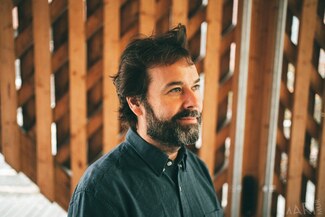 Finnish-Irish-American filmmaker-scholar Donagh Coleman holds degrees in Philosophy and Psychology and Music and Media Technologies from Trinity College Dublin, and an MA in Asian Studies from UC Berkeley. Previous award-winning films with wide international festival and TV exposure include A Gesar Bard's Tale (2013) and Stone Pastures (2008). Donagh's films have also been shown at museums such as MoMA and the Rubin Museum of Art in New York, and by the European Commission. Besides films and TV-documentaries, Donagh directs radio documentaries for the Finnish and Irish national broadcasters. His Radio Feature Gesar! was Finland’s entry for the 2012 Prix Italia competition, and his feature Do I Exist? was Finland’s entry for the 2015 Prix Europa competition. Donagh is currently pursuing a PhD in medical anthropology at UC Berkeley, continuing the research conducted for his 2022 feature documentary on Tibetan Buddhist tukdam deaths. He is a Dissertation Fellow in the ACLS / Robert H. N. Ho Family Foundation Program in Buddhist Studies.
Brooke O’ Harra leads a conversation with beat and investigative reporter Benjamin Herold and mother and education organizer Bethany Smith (whose experience in the Penn Hills suburbs is one of the case studies of his recent book Disillusioned). In Disillusioned, Herold investigates how heavily subsidized suburbs have allowed upwardly mobile white families to extract resources from communities only to leave behind the burden of bills on the Black and Brown families that follow them. This conversation will focus on the relationship between journalism and ethnography made evident in the collaboration between Bethany and Benjamin. Bethany wrote the epilogue to the book.
On March 19th, anthropologist and filmmaker Jorge Nuñéz will screen his documentary El Comité: La Toma del Penal García Moreno at 5 pm at The Public Trust (4017 Walnut Street)
Following the film, we will engage in a conversation with Jorge about Ecuador’s current prison crisis: How did Ecuadorian prisons evolve into spaces of extreme violence and dehumanization? How can we understand the spiral of organized crime violence? How did Ecuador go from being one of the safest countries in Latin America to being one the most violent in the region? EL COMITÉ: LA TOMA DEL PENAL GARCÍA MORENO
Jorge Núñez
Jorge Núñez is Assistant Professor in the Department of Anthropology at the University of Amsterdam. He is the cofounder of Kaleidos at the University of Cuenca, and codirector of the Ecuadorian Prison Observatory 593. He is also the lead designer of the digital platform EthnoData. Among other things, Jorge studies cocaine markets and state violence. He has conducted collaborative ethnography with prisoners and their families for twenty years.
A Note from Ra' Anan:
Hello everyone, I am privileged and grateful to be CEE fellow this semester and looking forwards to engaging with you all. Towards the upcoming meet-the-fellows event I am sharing links to 3 films I made about Israel/Palestine in the last two decades. The films disclose the way I position myself towards the place that I come from, and my effort to communicate my understanding of the conflict with audiences. They also demonstrate a shift in my understanding of the power relations that underly my making these films over this period of time, and an aesthetical shift from a cinema that wants to capture beauty of landscapes and of faces; to explore people’s actions and body language - to an almost emotionless, claustrophobic, almost suffocated filmmaking. This trajectory was not premeditated – it was informed by the question that the very making, and releasing of each of these films into the world brought up and if interesting for the group I am happy to share some thoughts. -Ra'Anan Film Links: The Inner Tour (2000) password: TIT111120 The Law in These Parts(2011) password: TLITP2023 The Viewing Booth (2019) password: SNFP2021
Join us for the first meeting of the year for the Black Reproductive Working Group, which gathers together reproductive justice workers, scholars, healers, and community allies. This month we are joined by Dr. Jill Baker, the CEO of “A Tribe Called Fertility LLC” and Creator/Producer of “Maternal Health 911” Podcast, and the Executive Director of the Center for Parent and Teen Communication (CPTC) at CHOP. Lunch will be served with vegan and vegetarian options. THE WORKING GROUP What sites, processes, and practices constrain Black parental and reproductive autonomy in Philadelphia institutions and communities? We convened this working group in 2022 to study constraints on Black reproduction in contemporary, historical, and global contexts, especially as these freedoms are challenged through public health, reproductive medicine, legal systems, and economic practice. Reproductive Justice (RJ) frameworks were created in 1994 by a group of Black women activists, including prominent RJ scholar Loretta Ross, to call attention to the racial and gendered disparities in reproductive rights, especially in the way these rights are conceptualized and applied. Through a RJ lens, reproductive rights involve the right to not have children, but also concomitant rights to have children, and to parent children in safe environments with dignity. These latter two sets of rights are of particular historical concern to black parents and parents of color, given that their rights to have children, keep children, and parent them safely have been routinely targeted in medical, legal, and economic domains. By drawing together expertise from local Philadelphia communities, community organizers, and Penn scholars, we aim to conscientiously build a monthly community sharing space, develop our understanding of reproductive justice, and develop practical ideas for integrating RJ frameworks more deeply into our practices.
Our Third Thursday event for February explores BE HOLDING, an original performance created by poet Ross Gay, composer Tyshawn Sorey, new music ensemble Yarn/Wire, and director Brooke O’Harra. Inspired by Philadelphia 76ers basketball legend “Dr. J” and his iconic baseline scoop in the 1980 NBA Finals, Be Holding meditates on America’s history of racial violence in search of Black genius, justice, and joy. Produced by Girard College, a tuition-free boarding school for underserved youth that was at the center of Philadelphia’s civil rights movement, Be Holding opens the school’s historic campus to the city and fosters conversation on social justice issues that continue to impact its majority Black population today.
This conversation brings together key creative voices including poet and performer Yolanda Wisher, poet and performer David Gaines, director/artist Brooke O'Harra, and Ross Gay himself. MEET THE SPEAKERS
Our rescheduled "Meet the Fellows" event will take place on Friday, February 23rd, bringing together artist Ernesto Pujol and filmmaker Ra'anan Alexandrowicz in conversation with interim CEE Director Dr. Kristina Lyons about their courses and their plan for the semester. While at Penn, Ra'anan is teaching an urgent course, "One Land, Two Cinemas" where participants function as a research team exploring the Israeli-Palestinian conflict through historical facts and their cinematic representations. In Ernesto's course, "Ethnography of Vulnerability" students will use readings, discussions, and an immersive spring break field trip to Puerto Rico hosted by a queer farming collective to engage with the instructor's approach to ethnographic vulnerability and/as a multi-disciplinary social choreography process.We are delighted to welcome our new Spring 2024 Fellows Ernesto Pujol and Ra'anan Alexandrowicz.
A Video Installation Exhibit Join us on Saturday, December 9th for our end-of-fellowship event with Sosena Solomon, who will present and curate a multi-projection exhibit consisting of the experimental video documentaries of students in her fellows course. The exhibit will take place at Addams Gallery at Charles Addams Fine Arts Hall at 200 S 36th Street.
SOSENA SOLOMON
Strategies on Black queer feminist freedom-making
CEE Fellow Jennifer Harge will present her ongoing archival project that houses movement scores, maps, prayers, and citations she's utilized over the last decade to craft a Blackqueer feminist creative praxis as a dancemaker in Detroit, MI. In this presentation, Harge will share choreographic entry points into the archive and discuss the permissions she has given herself and her work to build a practice rooted in Black longevity. Harge will be joined by scholar-practitioner and assistant professor of Africana Studies, Jasmine Johnson.
This talk reflects on the collaborative construction of a multimodal platform aimed at seeking integral restitutive justice for the victims of prison massacres in Ecuador. In making ethnographic multimodality adequate for accompanying victims and reclaiming justice, the platform – Prison Observatory 593 – brings together families of prisoners killed while incarcerated, human rights lawyers, liberation theology priests, and decolonial scholars. Building on our experience with the Observatory, this talk is an invitation for an interdisciplinary conversation about how the notions of cinematic accompaniment and decolonial reclamation can help us contribute to an abolitionist intervention against the carceral state.
Indigenous activists everywhere are attempting to steer the world away from climate collapse. The films in this year’s series depict efforts to reclaim land in order to save all beings on the earth and for a more livable future. The Bishnoi: India's Eco-Warriors
Dir. Franck Vogel and Benoit Segur, 2011, 52 min. For centuries, the Bishnoi of Rajasthan in India have been stewarding and preserving the biodiversity of their land. They follow a 500 year old philosophy that all living beings have the right to survive and share all resources. Filmmakers Franck Vogel and Benoit Segur share the stories of three Bishnoi people: Khamu Ram Bishnoi, who fights against plastic pollution; Rana Ram Bishnoi, who has planted over 22,000 trees in the desert; and Ranveer Bishnoi, who hopes to become a priest. Presented with new subtitles created for this screening Screening followed by a conversation with filmmaker Franck Vogel and Dr. Nikhil Anand, Associate Professor of Anthropology, University of Pennsylvania. Please come to the small Diwali reception after the screening.
Join GSWS, CEE, and members of the public for an exciting showcase of films from Ricardo Bracho and his students! Videos in this showcase were made by students in Ricardo Bracho's courses (Surrealism in the Americas, Planets in my Pen), in indepent studies, and in collaboration on theater productions, for a Sachs mini-grant and when Bracho was a Fellow with the Center for Experimental Ethnography. You'll experience wild pink ladies, the US/Mexico border, Brazil's fashion industry at war with its military dictatorship and so much more! GSWS/FQT Center Suite 345 Philadelphia, PA 19104
Join a workshop directed by Victoria Costa and Kristina Baines, co-directors of Cool Anthropology, focused on public scholarship in anthropology. Workshop attendees will participate in exercises that explore how to make their research more accessible to the public through various types of media. Penn undergraduate, graduate, faculty, and staff are invited to join in this free event.
Join us for a Second Sunday Culture Film screening followed by conversation with filmmaker Alexi Liotti and Pacheedaht First Nation Elder Bill Jones.
A peaceful indigenous-led movement to protect the Ada’itsx/Fairy Creek watershed in the last of British Columbia’s untouched Old Growth forests has become Canada’s largest act of civil disobedience. Named the best environmental film at the 2023 Vancouver International Mountain Film Festival, Rematriation follows concerned citizens exploring the confluence of scientific, cultural, economic and sociopolitical perspectives, as they take a stand to protect the last big trees from being cut down. The Second Sunday film series is organized by the Penn Museum and co-sponsored by the Center for Experimental Ethnography, the Wolf Humanities Center, the Cinema and Media Studies Program at Penn and the Penn Program in the Environmental Humanities.
Calling all collaborators and volunteers for CAMRA! If you are interested in participating in this student-led collective, please fill out the form by Friday the 13th. On Friday, October 13th at 1:15pm in the Student Lounge at Penn’s LGBT Center, CAMRA will have the first Open Meeting of the year. Come and join us to imagine what this year will look like! We extend the invitation to returning and potential new members to brainstorm our vision for CAMRA and discuss our plans for the year ahead. CAMRA (Collective for Advancing Multimodal Research Arts) fosters interdisciplinary collaborations amongst scholars, sensory ethnographers, artists and educators within and beyond the University of Pennsylvania to explore, practice, evaluate and teach about multimedia research and representation.
We ask questions about the affordances, challenges, and possibilities of multimodal scholarship in teaching, learning, mediamaking, and knowledge production. Our aim is to support media-based research and pedagogies, with an explicit focus on: (1) providing practical guidelines for evaluation of multimodal research; (2) utilizing participatory, digital, and ethnographic methodologies; (3) creating digital and physical spaces for multimodal work to be showcased; (4) critically examining how technology is changing the processes of teaching and learning.
Andrea Ballestero (Associate Professor of Anthropology, USC Dornsife) will present "Aquifers: Ehtnography at the edges of a concept," in this second installment of the "Elemental Thinking: Troubling States of Matter in the Americas" lecture series sponsored by the CLALS Interdisciplinary Research Cluster (IRC). This IRC is led by Penn professors Kristina Lyons (Anthropology) and Jon Hawkings (Environmental Sciences) in collaboration with other professors and graduate students across Penn’s schools and partners from Latin America and the U.S. RSVP HERE to attend in person. RSVP HERE to attend by Zoom. Imagining what life will become in the near future, public officials and community members in Costa Rica are coming together to take responsibility for underground water worlds. In the process they oscillate between two concepts: groundwater and aquifers. Groundwater efficiently conveys a sense of water as a fungible unit that can be exchanged, banked, or spent. In contrast, the figure of the aquifer activates a grounded concept whereby land, liquidity, and history are inseparable. This paper queries the technical and legal tools people use to move from groundwater to aquifers, and back. Focusing on questions around jurisdiction and database making, I consider the everyday tasks required to align the world that is with the world that could be. The elements have been taken up as a heuristic in the Arts and Sciences to understand environmental systems and change across geographical and cultural contexts. The approach to studying environments through the elements – most notably the classical elements of fire, earth, water, and air – has been foundational to the composition of Environmental Anthropology and its configurations of expertise, as well as the Environmental Sciences. However, the stakes of our current socio-ecological crises demand we engage with the elements as more than only taxonomies, statistics, and natural resources. This proposed interdisciplinary research cluster focuses specifically on socio-environmental conflicts and justice struggles involving these elemental assemblages. Our IRC cluster will engage with these pressing issues by placing the social studies of science & technology (STS), environmental law/justice, and the natural and environmental sciences in conversation through the combination of several activities: talks with invited guests and the organization of workshops and roundtables. We will focus on both case studies and broad trends occurring across the hemisphere in academic scholarship, scientific knowledge production, and public praxis. (Written by Kristina Lyons)
choreographies of responsibility, and has developed the concept of casual planetarities. Her scholarship is located at the intersection of feminist STS, legal anthropology, and social studies of finance and has been supported by the National Science Foundation, the Mellon Foundation, the Wenner Gren Foundation, the Social Science Research Council, and the Fulbright program.
Join CEE for a conversation with author Asale Angel-Ajani on her book "A Country You Can Leave". We have 4 books available for in-person pickup for the first interested readers that get in touch with us (experimental-ethno@upenn.edu). When sixteen-year-old Lara and her fiery mother, Yevgenia, find themselves homeless again, the misnamed Oasis Mobile Estates is all they can afford. In this new community, where residents are down on their luck but rich in humor and escape plans, Lara navigates what it means to be the Black, biracial daughter of a Russian mother and begins to wonder what a life beyond Yevgenia's orbit—insistence on reading only the right kind of books (Russian), having the right kind of relationships (casual, with lots of sex)—might look like. Lara knows that something else lies beneath her mother's fierce, independent spirit, but Yevgenia doesn't believe in sharing, least of all with her daughter. When a brutal attack exposes the cracks in their relationship, Lara and Yevgenia are forced to confront the family legacy of violence and the strain of inherited trauma on the bonds of their love. A Country You Can Leave is a dazzling, sharp-witted story, suffused with yearning, as Lara and Yevgenia attempt to forge their own identities and thrive in a hostile land. Compelling and empathetic, wry and intimate, Asale Angel-Ajani's unforgettable debut novel examines the beauty and dangers of womanhood in multiracial America.
We are excited to present an asynchronous virtual screening of Be Holding, an original performance created by a team of professional artists in collaboration with students at Girard College. It transforms
Ross Gay's award-winning poem of the same name into a multidisciplinary, site-specific experience that combines poetry, music, choreography, and video. Inspired by Philadelphia 76ers basketball legend "Dr." and his iconic baseline scoop in the 1980 NBA Finals, Be Holding wonders how the imagination, or how our looking, might make us, or bring us, closer to each other. How our looking might make us reach for each other. And might make us be reaching for eachother. And how that reaching might be something like joy. Produced by Girard College, a tuition-free boarding school for underserved youth that was at the center of Philadelphia's civil rights movement, Be Holding opens the school's historic campus to the city and fosters conversation on social justice issues that continue to impact its majority Black population today. Over two years of on-campus residencies, students collaborated with the acclaimed team of professional artists to study the themes of the work, explore how these artistic disciplines interact, and gain hands-on experience in developing a pertormance for the stage. Be Holding is staged at center court in The Cheesman A. Herrick Fieldhouse & Armory at Girard College in Philadelphia, PA. Major support for Be Holding has been provided by The Pew Center for Arts & Heritage, with additional support from The MAP Fund, which is supported by the Doris Duke Charitable Foundation, Howard Gilman Foundation, and Mellon Foundation.
Please join us for book talk and conversation with the talented scholar, journalist, and poet Stephanie Saldaña. Stephanie will share from her new book "What We Remember Will Be Saved." Journalist and scholar Stephanie Saldaña, who lived in Syria before the war, sets out on a journey across nine countries to meet refugees and learn what they salvaged from the ruins when they escaped. Now, in the narratives of six extraordinary women and men, from Mt. Sinjar to Aleppo to Lesvos to Amsterdam, we discover that the little things matter a great deal. Saldaña introduces us to a woman who saved her city in a dress, a musician who saved his stories in songs, and a couple who rebuilt their destroyed pharmacy even as the city around them fell apart. Together they provide a window into a religiously diverse corner of the Middle East on the edge of unraveling, and the people keeping it alive with their stories.
Save the dates and check back here soon for more info soon. links and information to all events will be populated closer to the dates. SEE YOU THERE!
At the first virtual Third Thursday of the academic year, Dr. Jasmine Johnson conversed with incoming CEE Fellows Jennifer Harge and Sosena Solomon, who are teaching interdisciplinary master classes with students from across the schools.
July 12 | NOON at PAFA
A conversation at PAFA, student-creators of the CEE "Reckoning and Repair" podcast reflect on relationships, deep listening, and the role of artists as activists and critics. How do artists and organizers in Philadelphia confront the troubling histories of Empire in their midst? Is it even possible for colonially-based art institutions to meaningfully reckon with their own exclusionary histories? What models of reckoning and repair already exist in Philadelphia's art worlds? Panel speakers are: Katleho Kano Shoro, Chrislyn Laurie Larore, Adrianna Brusie, Anya Martin and Alissa M Jordan
Join us on May 1, 2023 for 12 hours of revelry, performance, screenings, and conversation in celebration of our fifth anniversary. Events kick off with a live performance of Primo Maggio, with screenings, performances, and treats throughout. Chill out in a relaxation installation, hear from Afghanistan's most prominent media makers in exile (in a conversation led by Wazhmah Osman), hear from Amitav Ghosh, participate in multiple soundings with Imani Uzuri, watch a drag performance by Cookie D'orio, dance to late night beats from DJ Reezy, and so much more!
10:00 AM - 10:30 AM Primo Maggio Anarchico Steven Feld Trust Your Moves Choir Trust Your Moves Choir guided by Steven Feld at the Main Entrance Upstairs Landing. 10:45 AM - 11:15 AM Suture Self in the Garden Disco Emily Carris Duncan A relaxation installation with lush textiles, plants, and music will provide the backdrop for a conversation about the quilt as an intimate textile that fosters rest, safety, and joy. 11:15 AM - 11:30 AM Soundings I Imani Uzuri Soundings in the Chinese Rotunda 11:45 AM - 12:30 PM Creating Future Countrysides and Future Cities` Damani Partridge Jenny Chio Creating Future Countrysides and Future Cities: Portraits, Collaborations, and Non-Citizens in the Post-Industrial Present. A discussion about different forms of portraiture, which will include some ... 12:30 PM - 2:00 PM Lunch and Screening of Mexican Psychotic Ricardo Bracho A screening of Ricardo Bracho's completed Mexican Psychotic video along with the videos made by students in his surrealism class (Widener Hall) 2:00 PM - 2:45 PM A Conversation on Institutional Decolonizing Wayne Modest James Claiborne A discussion about institutional decolonizing with Wayne Modest and James Claiborne. 2:45 PM - 3:30 PM Ethnography of No Place Screening (Directed by Saya Woolfalk and Rachel Lears) CAMRA Discussants A screening of an early film collaboration by Saya Woolfalk and Rachel Lears, followed by a multi-modal response developed by members of CAMRA (Widener Hall) 3:30 PM - 3:45 PM Soundings II Imani Uzuri Soundings procession from Widener to Mosaic Gallery Outdoor Space, led by Imani Uzuri 3:45 PM - 4:00 PM Horn to Horn Steven Feld A listening session to a collaboration with honking horn truck drivers in Accra (Africa Gallery) 4:00 PM - 4:15 PM Tea/Coffee Mosaic Gallery Coffee & Snack 4:15 PM - 5:30 PM Media in Exile/The Embodiment of Displacement Wazhmah Osman Roya Sadat Najiba Ayubi Sanjah Sohail A panel discussion with screenings with well-known Afghan media makers in exile. 5:30 PM - 6:15 PM doomsday: a lecture demonstration Christina Knight Jessi Knight 6:30 PM - 7:15 PM Place, Space, Time, Dance: Getting from Here to There Louis Massiah Reggie Wilson Screenings and a discussion about what we get and take away from the value a place/space holds/shares, about how we move over time and space, and about whether or not this changes (Rainey) 7:30 PM - 9:00 PM Dinner & Jungle-Nama Amitav Ghosh Brooke O'Harra Screening of clips from 'Retold' Documentary and Discussion (Widener Hall) 9:30 PM - 10:00 PM Drag Performance by Cookie D'iorio/Bearded Ladies Cookie D'iorio Bearded Ladies 10:00 PM - 12:00 AM (+1 day) DJ and Dancing |
Categories |
Contact Us // 438 PENN MUSEUm // experimental-ethno@upenn.edu
© 2018 The Trustees of the University of Pennsylvania
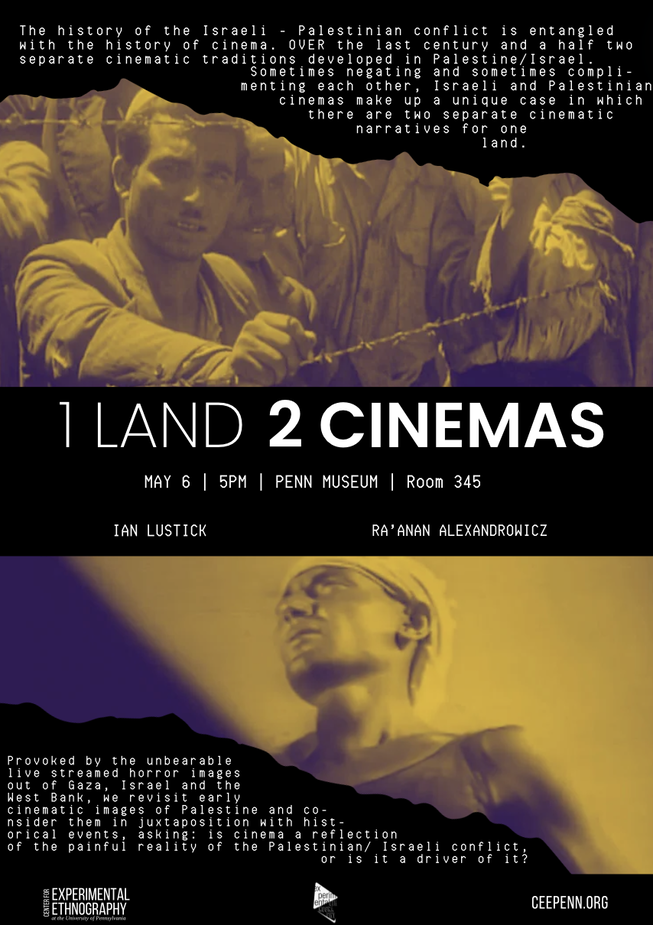
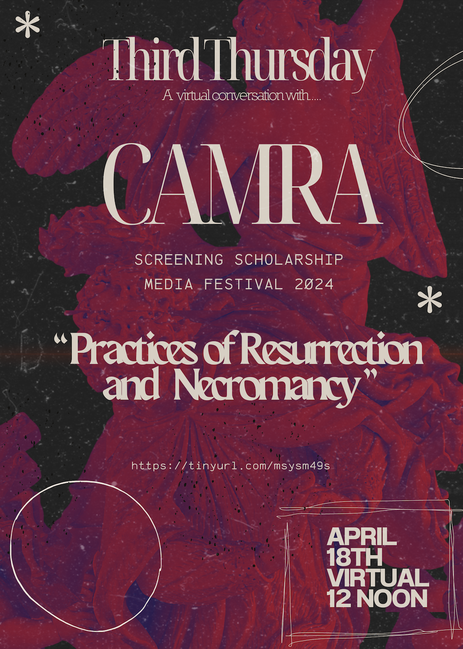
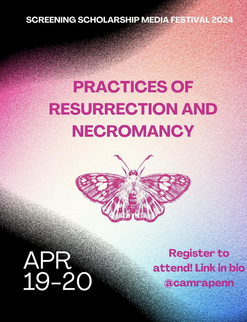
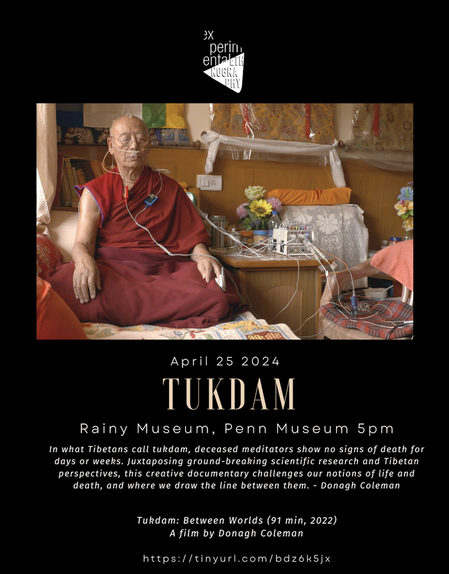
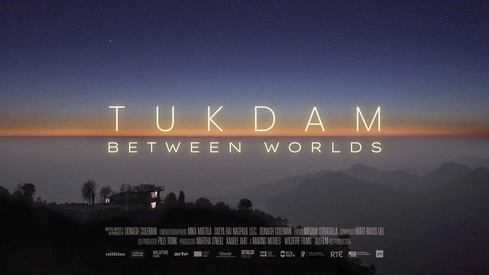
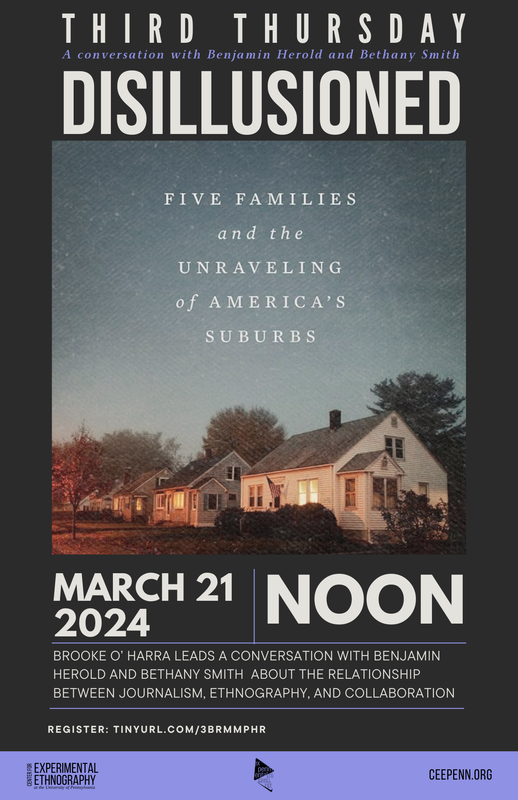
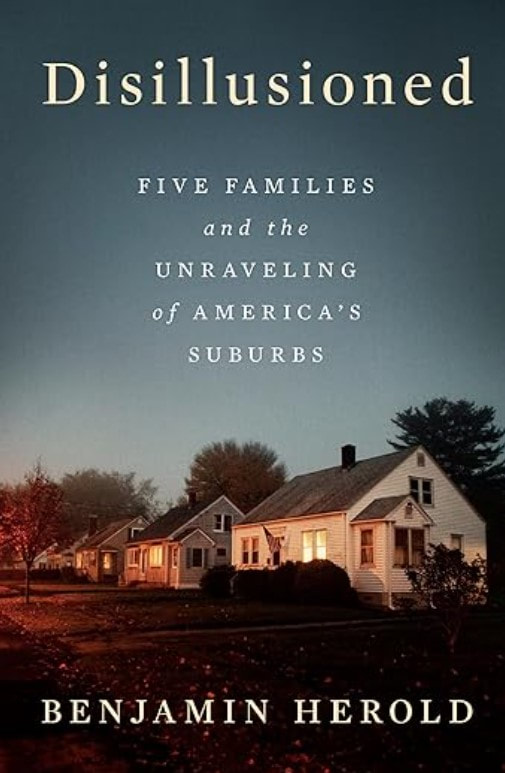
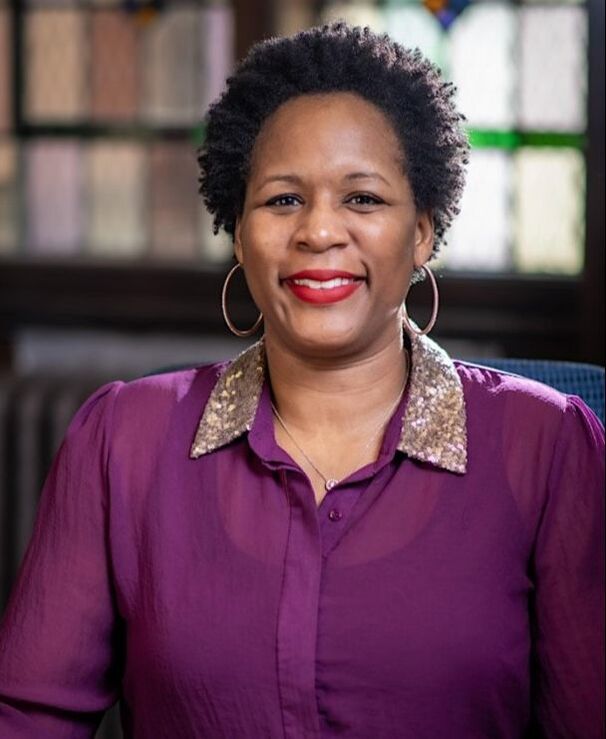
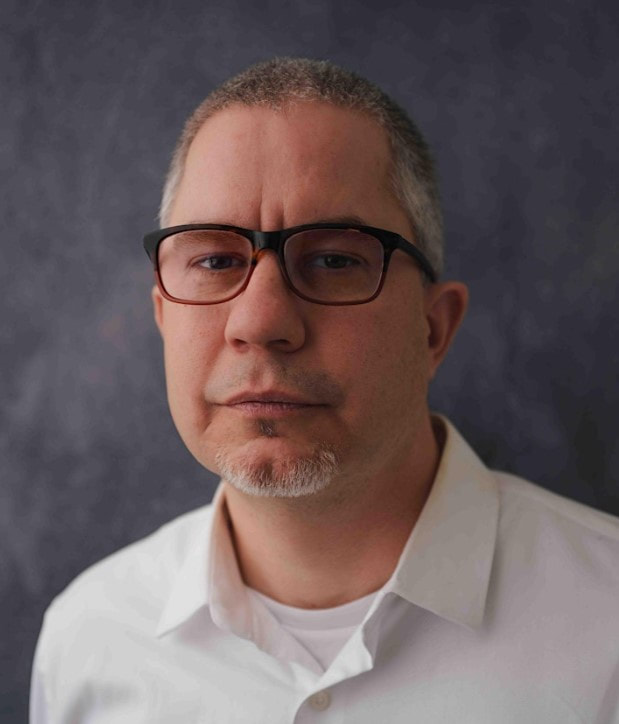
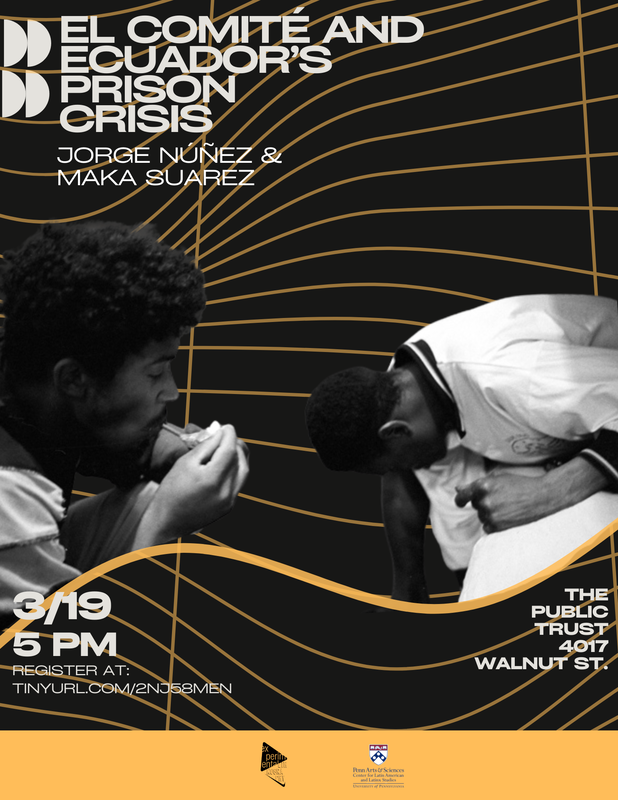
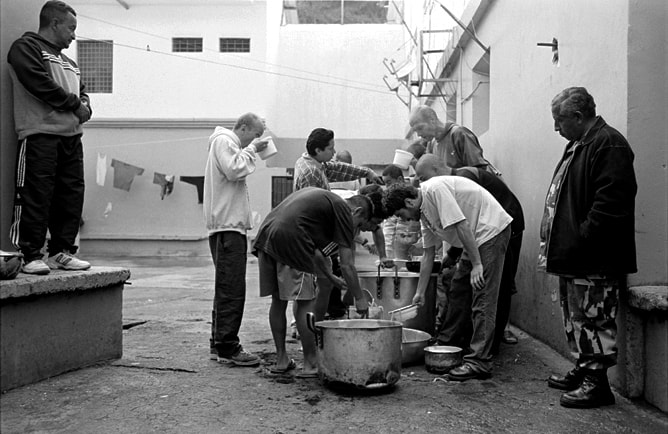
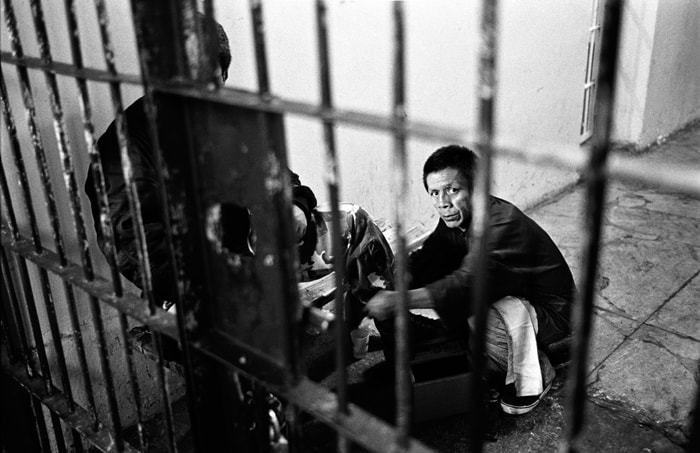
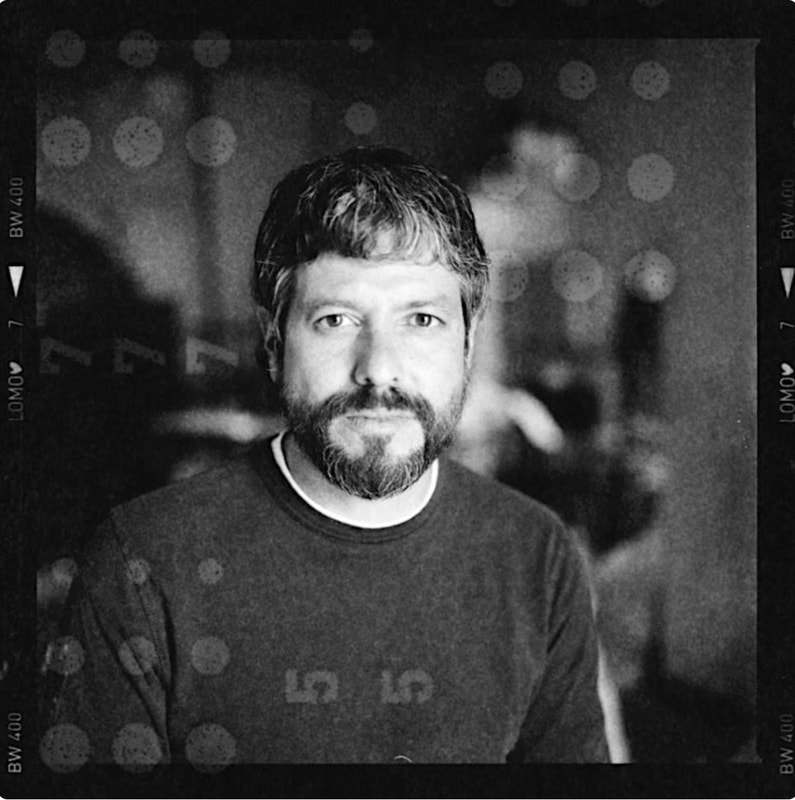
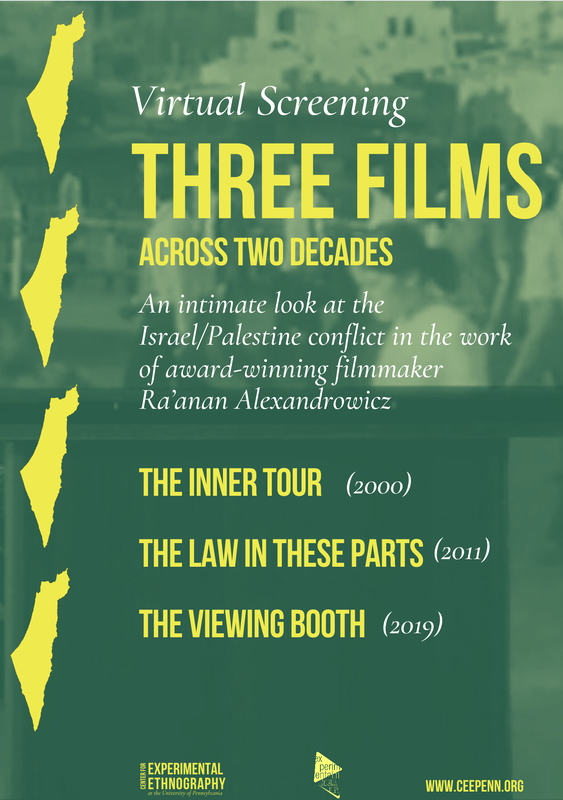

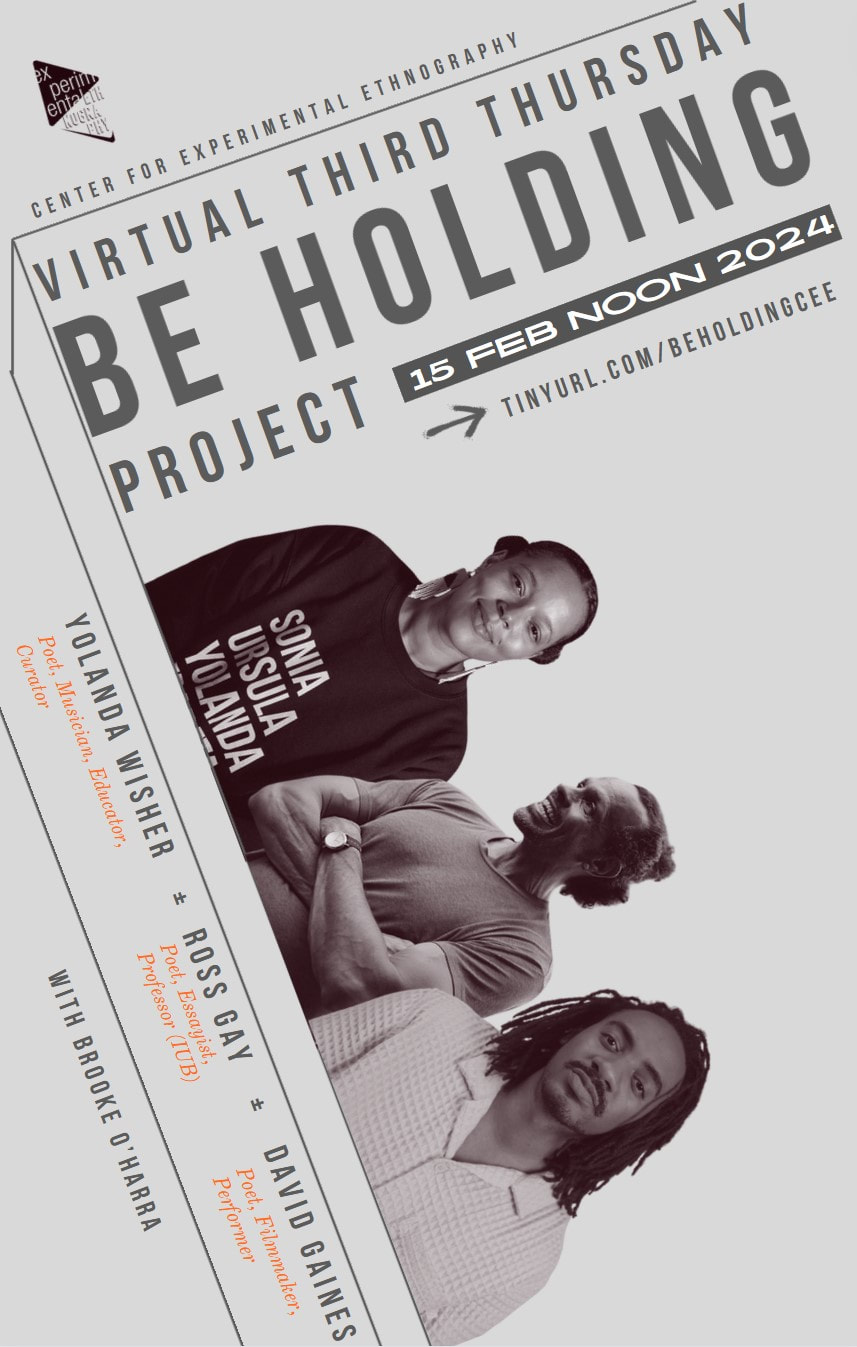
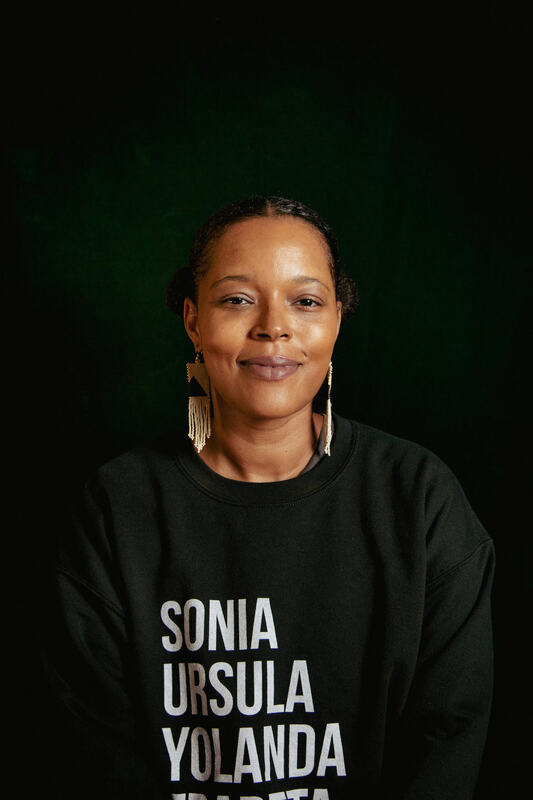
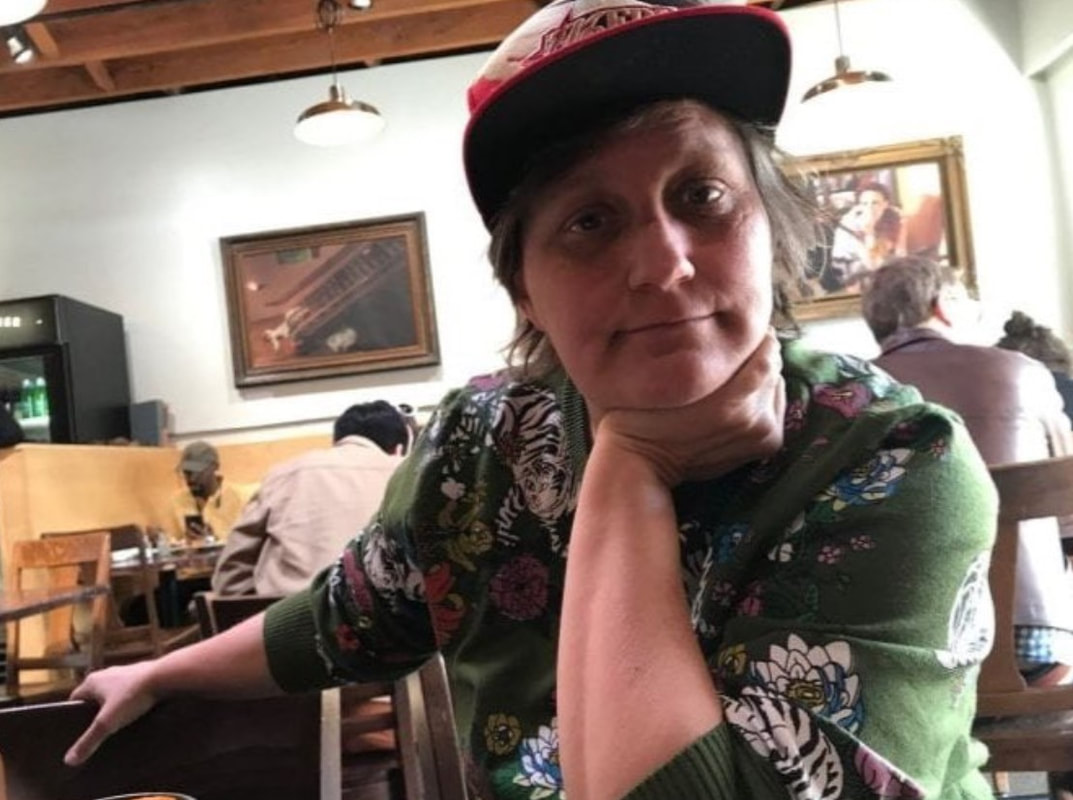
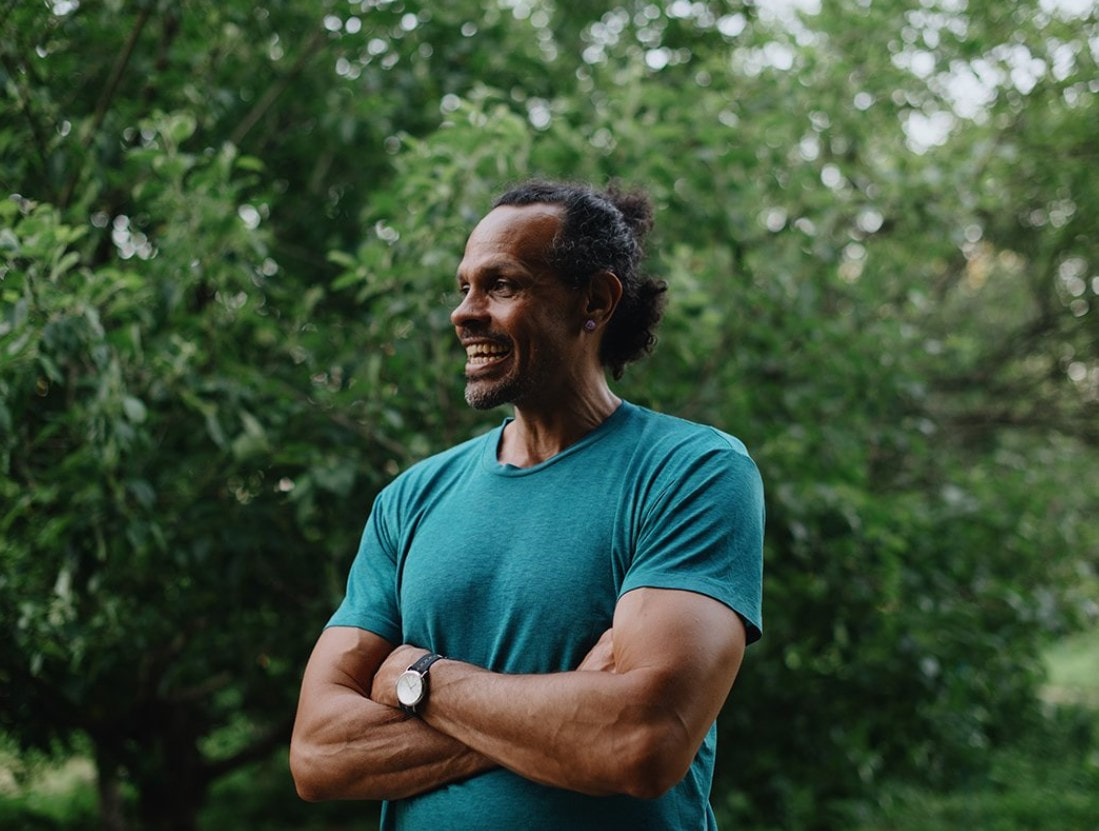
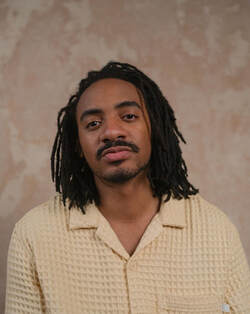
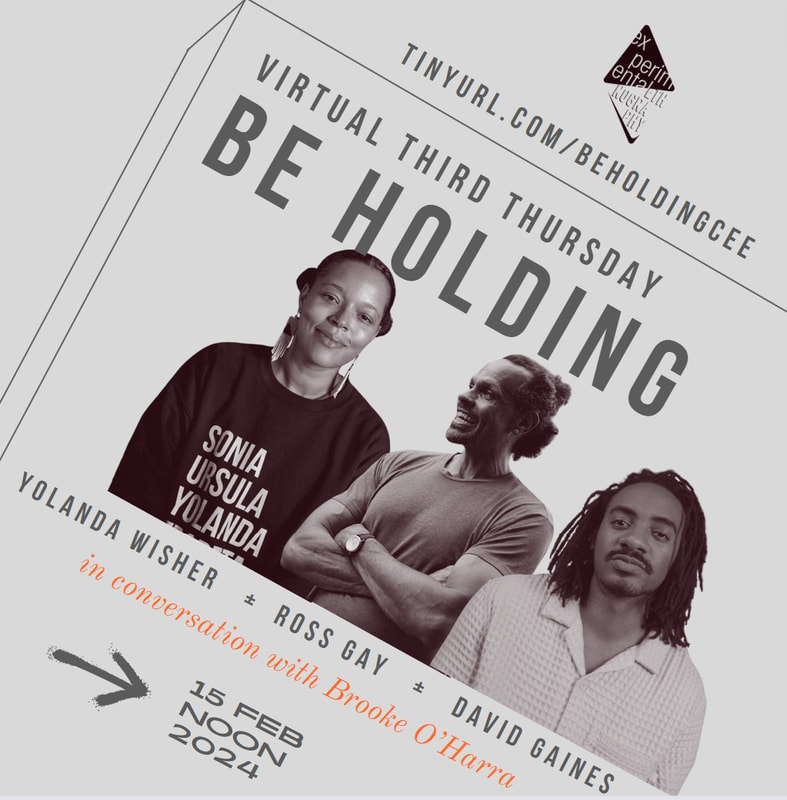
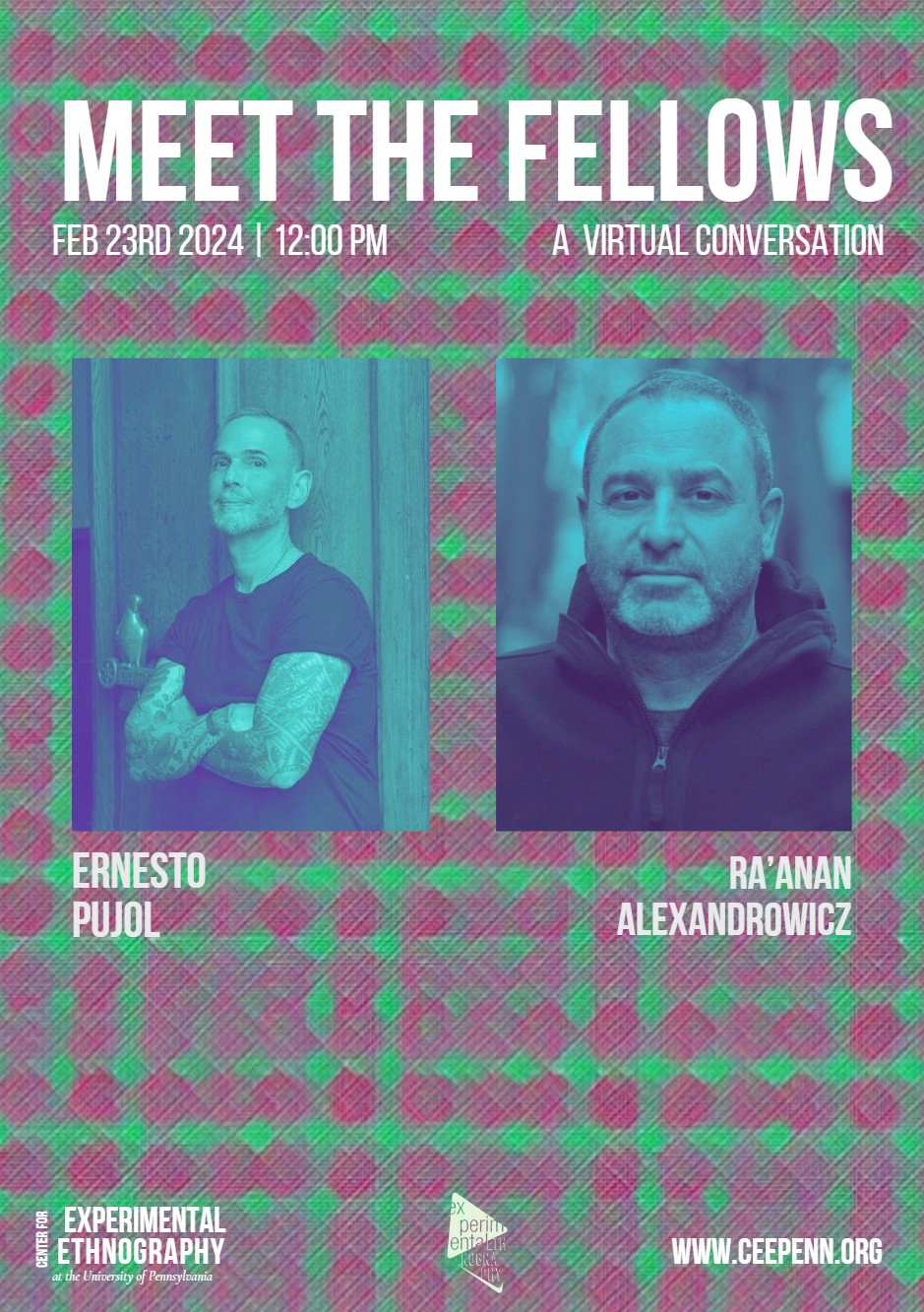
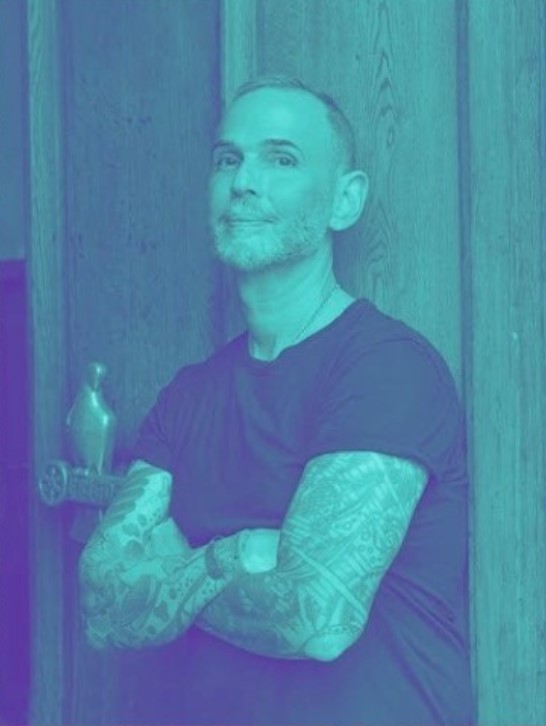
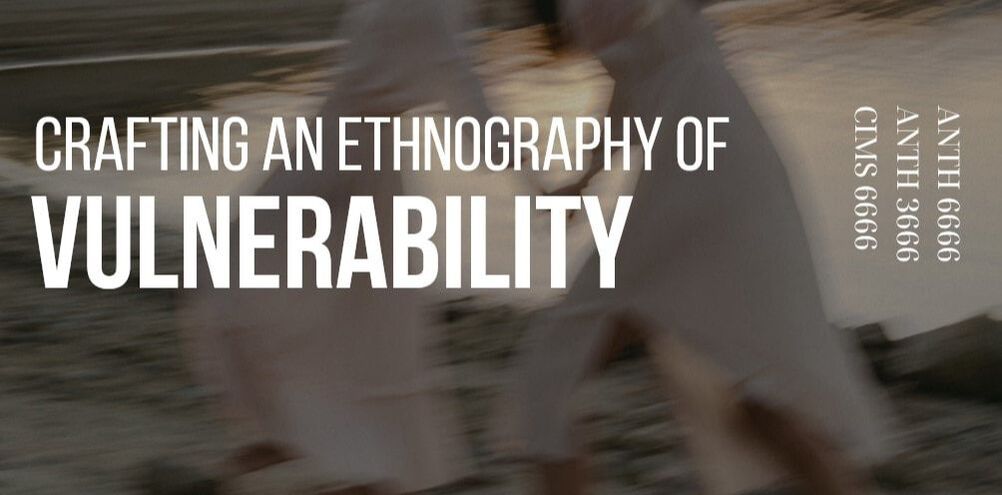
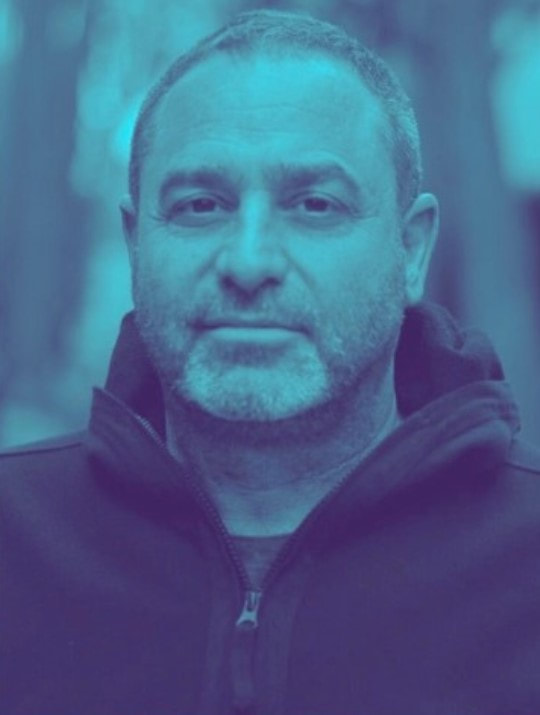
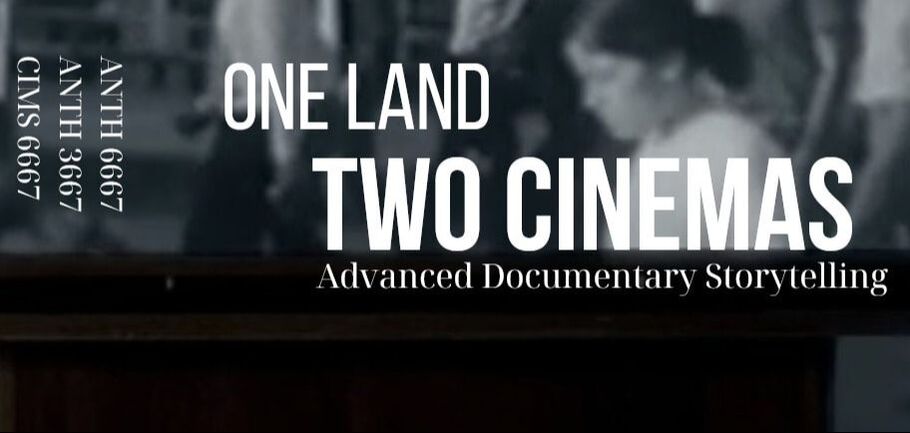
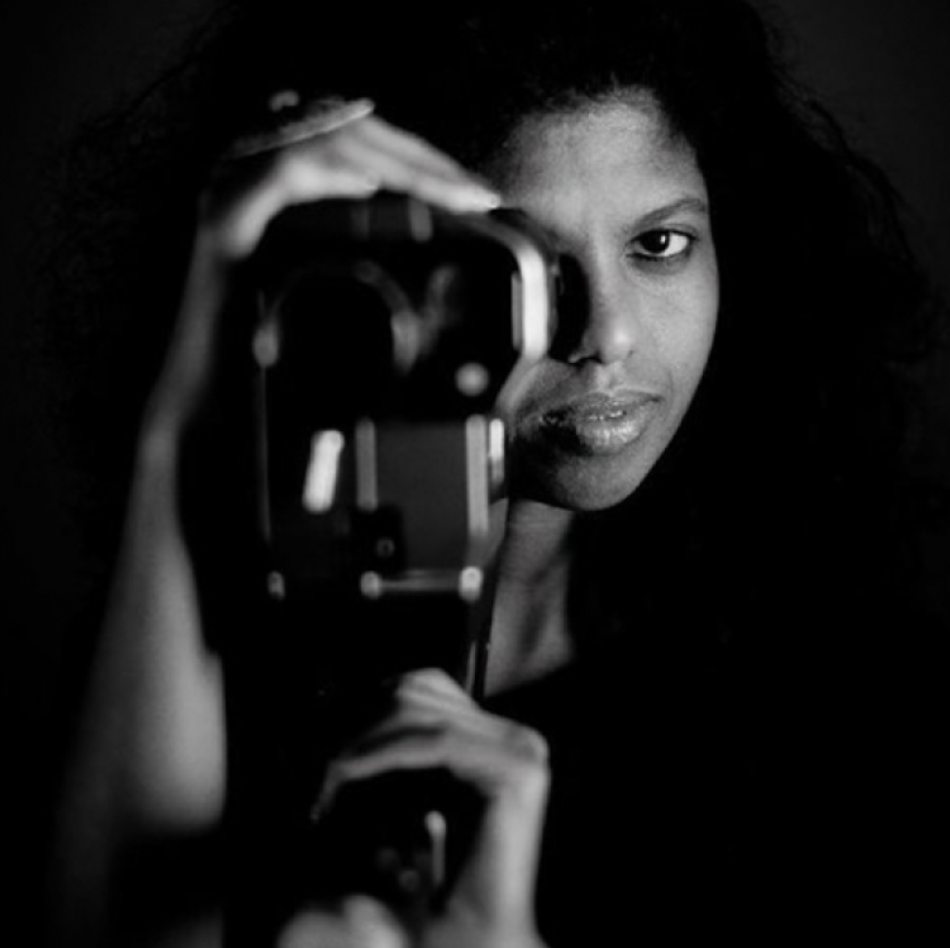
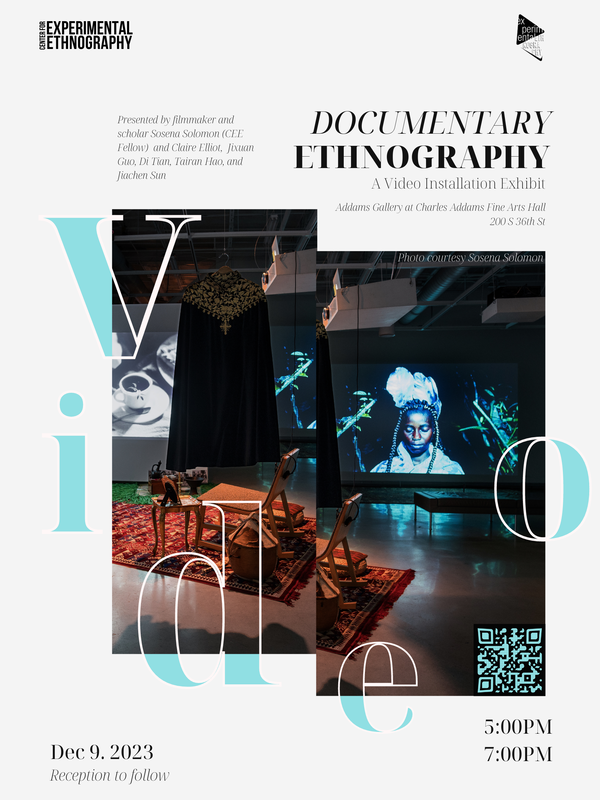
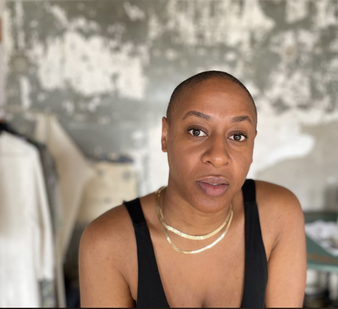
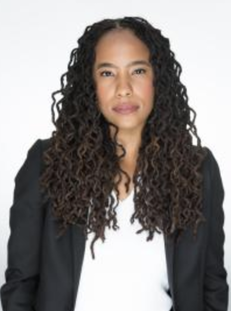
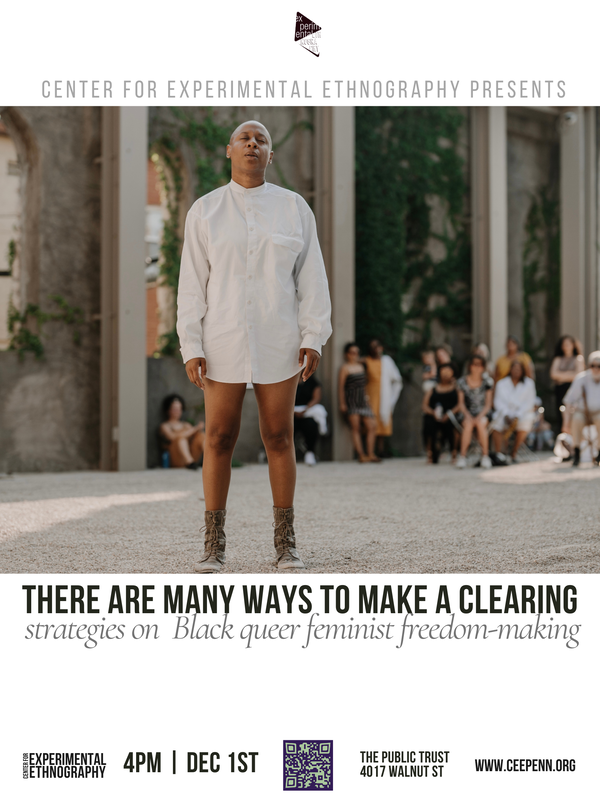
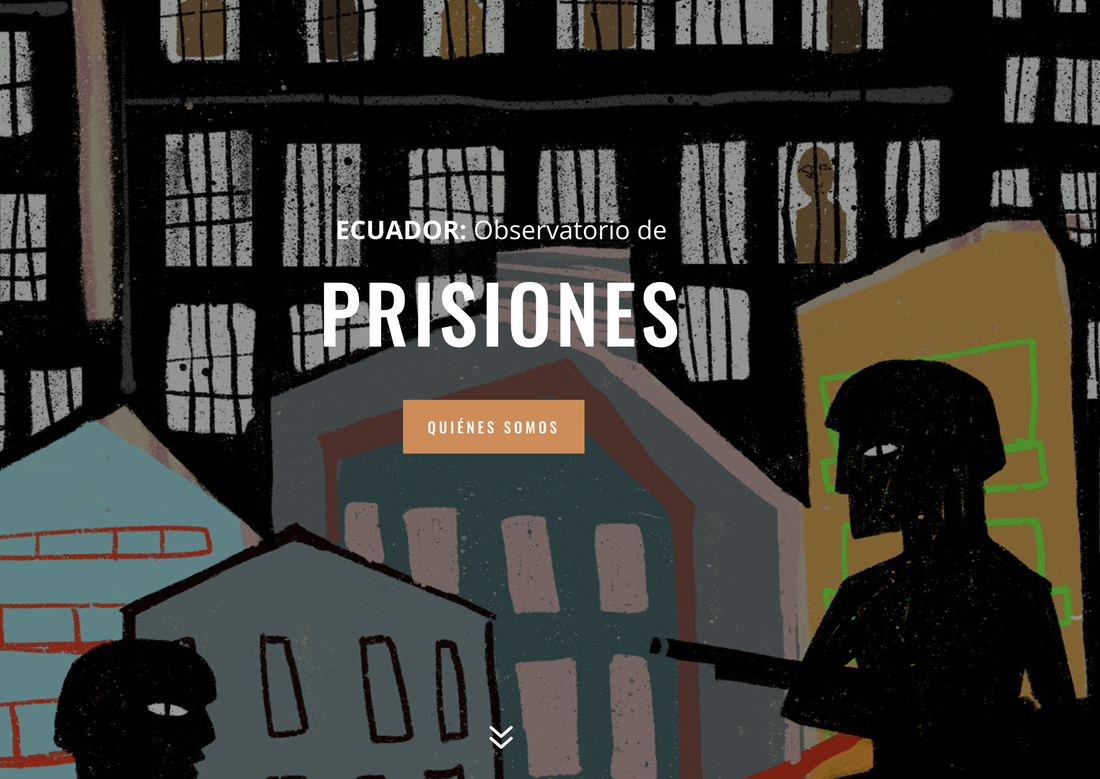
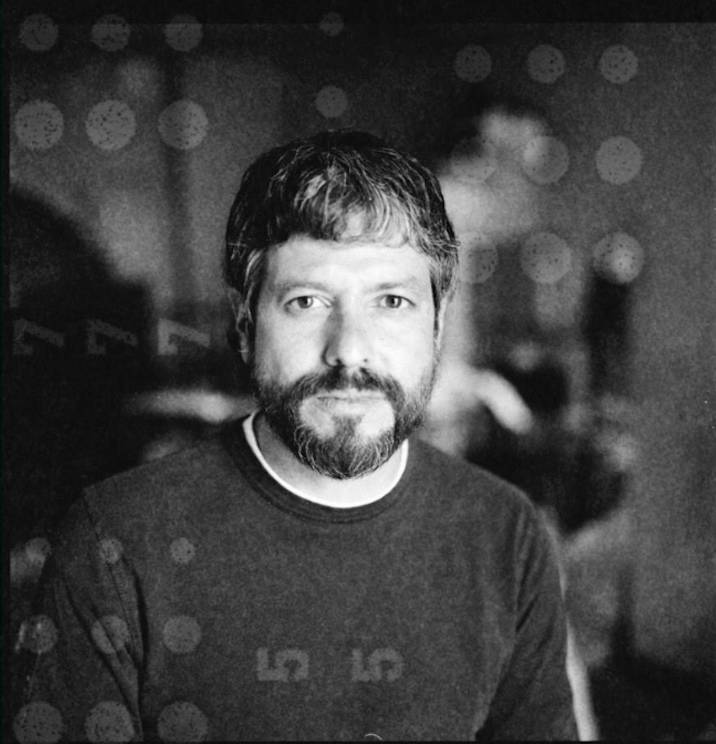
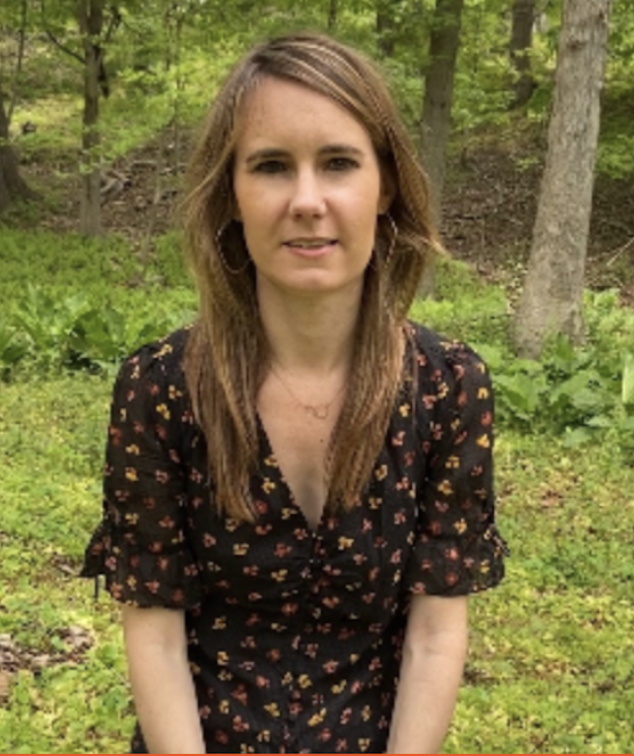
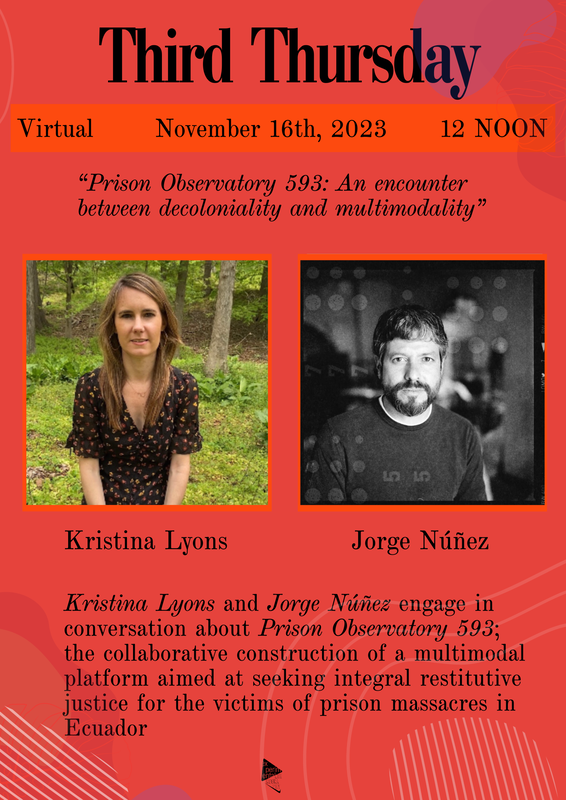
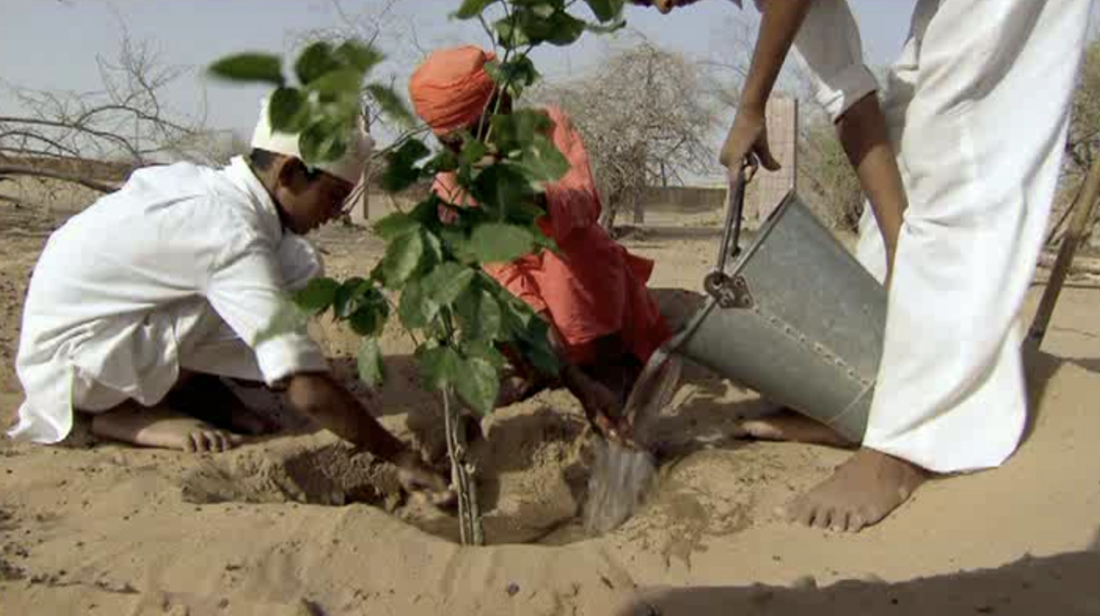
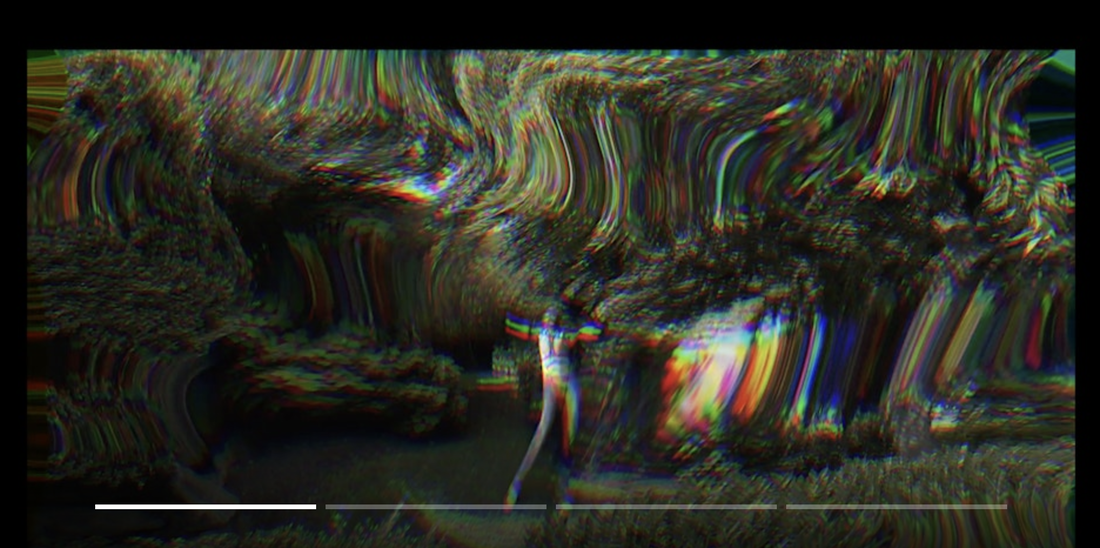
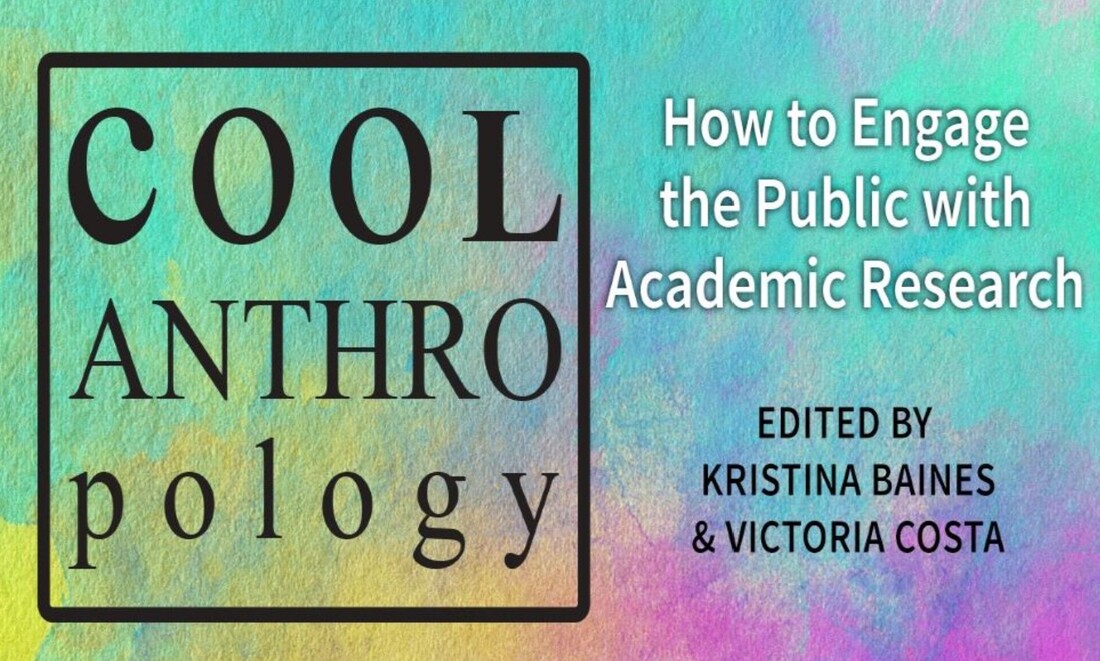
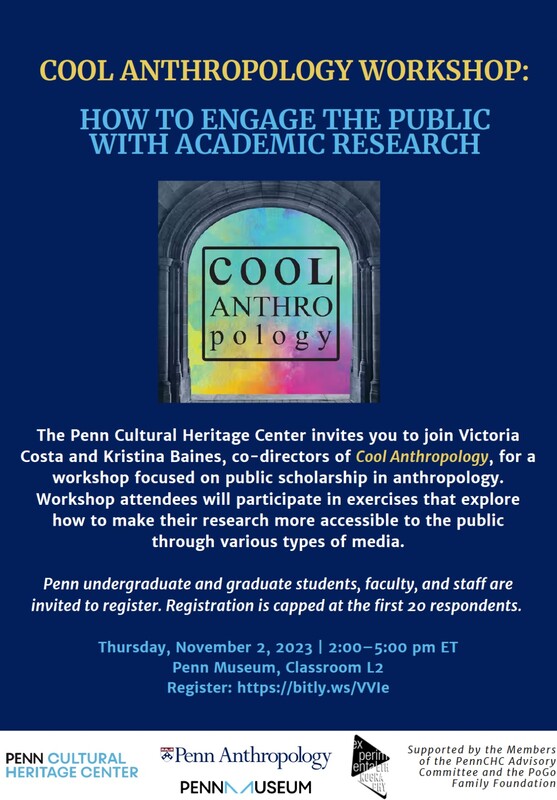
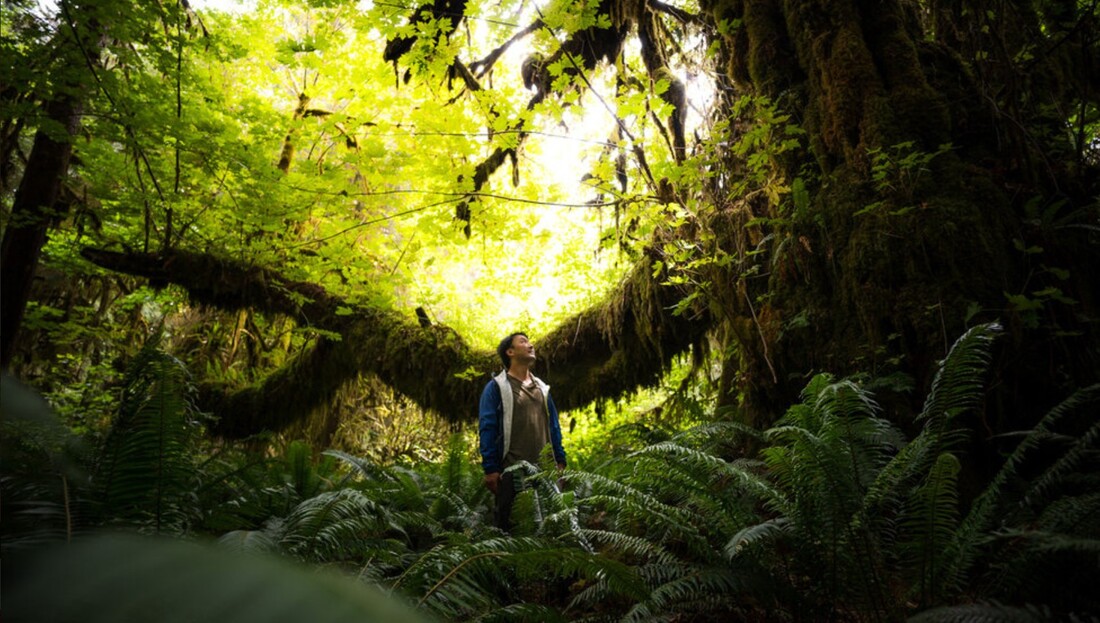
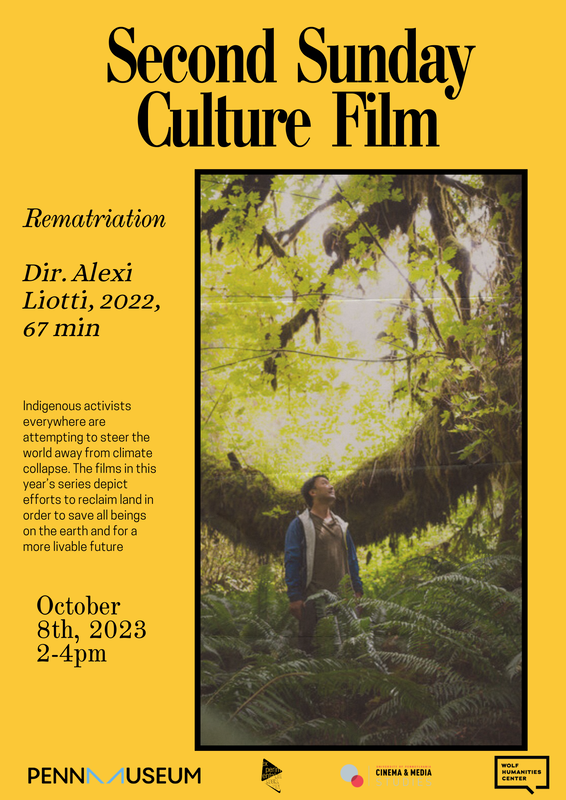
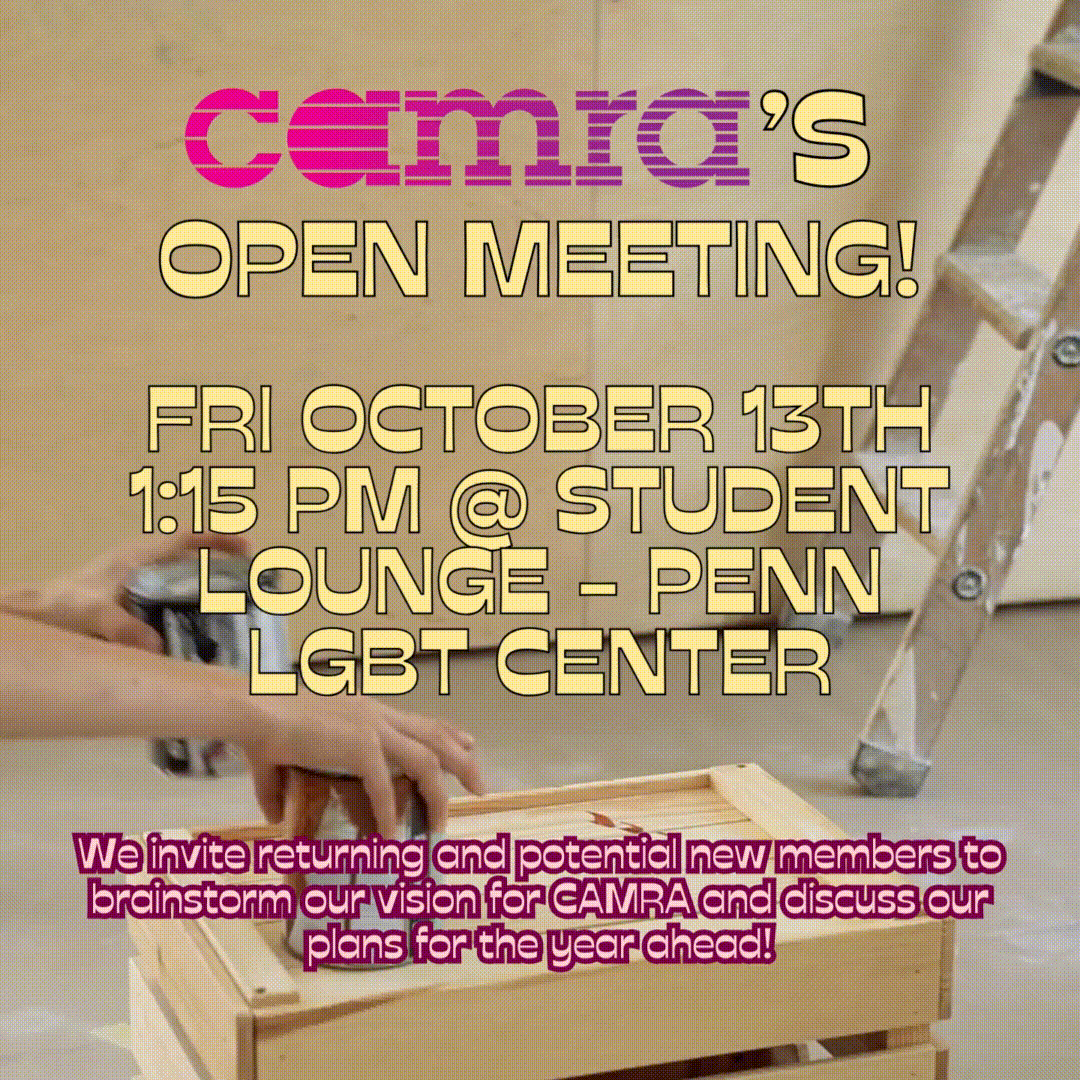

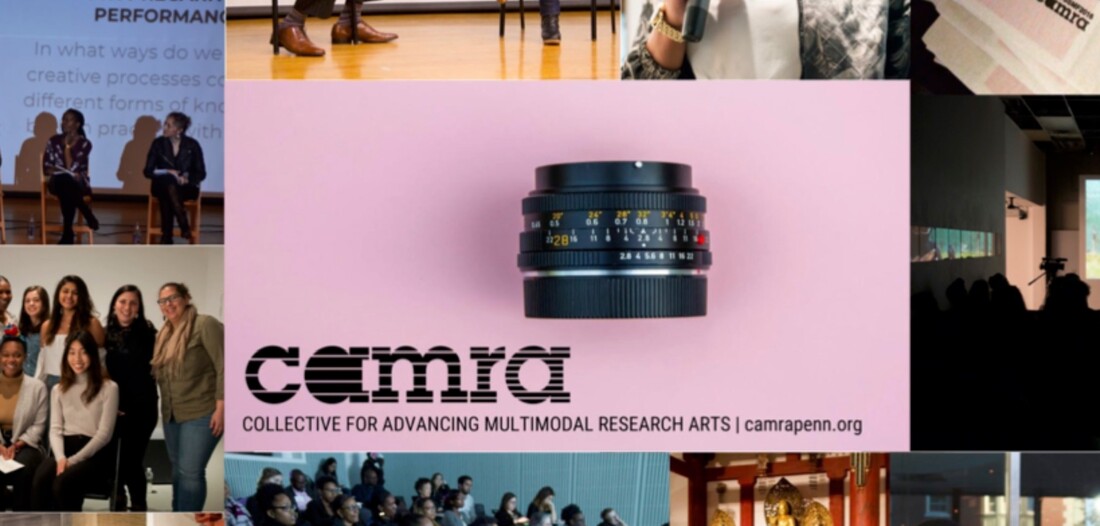
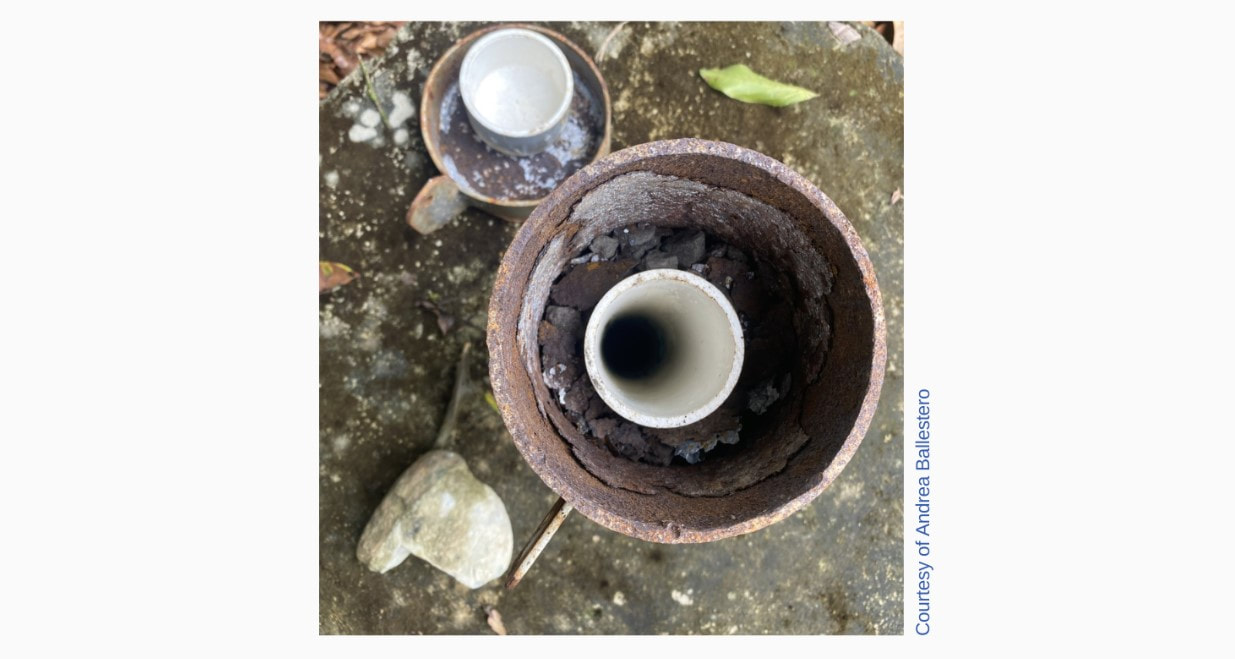
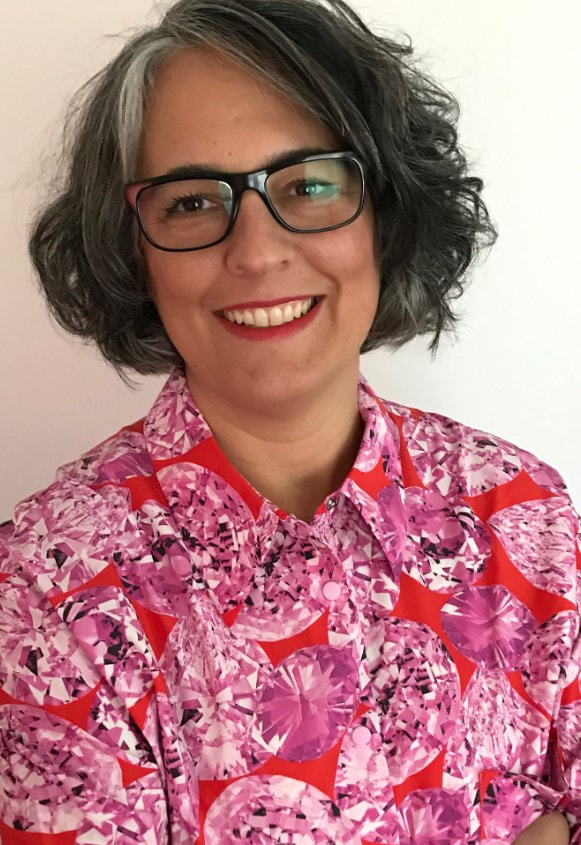
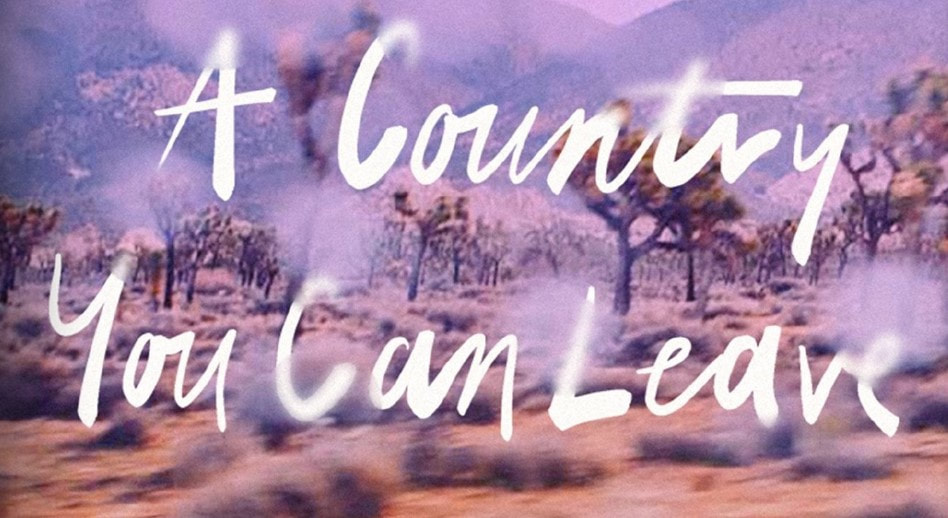
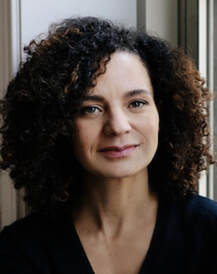
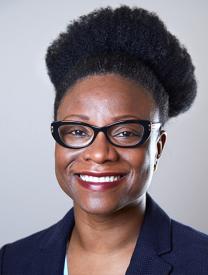
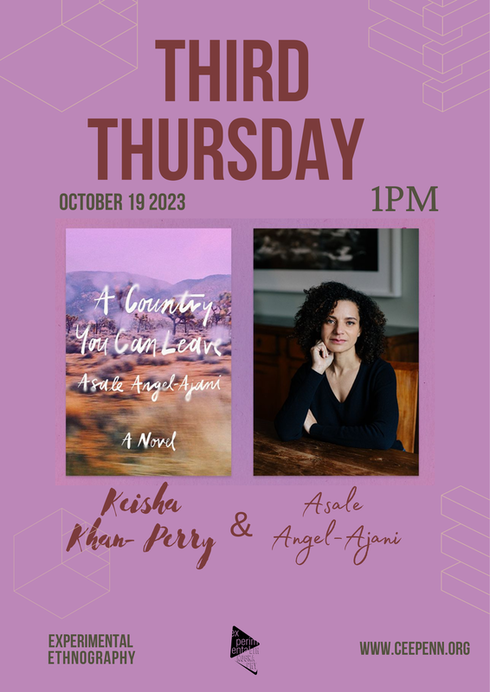

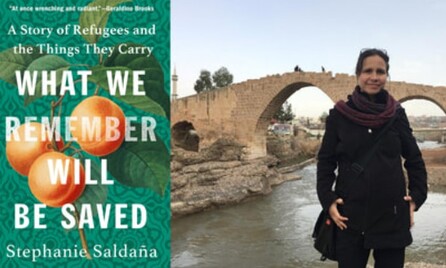
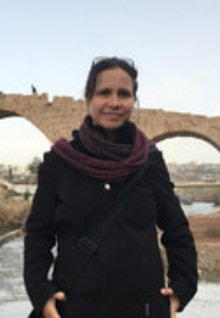
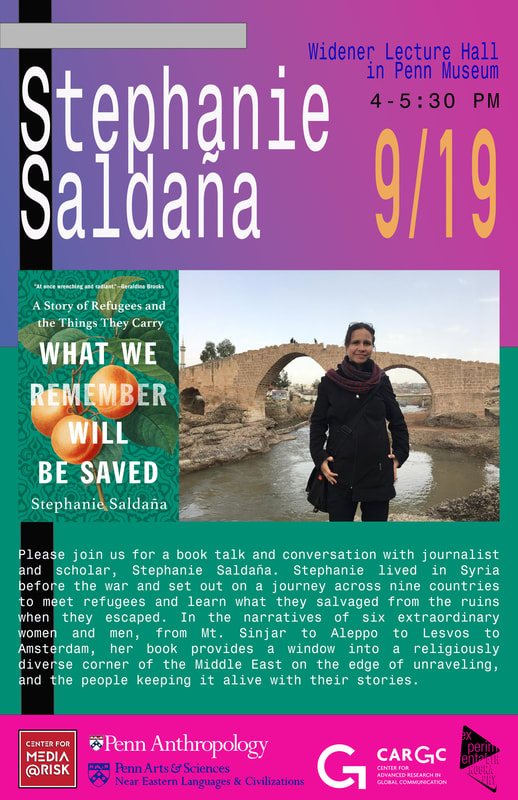
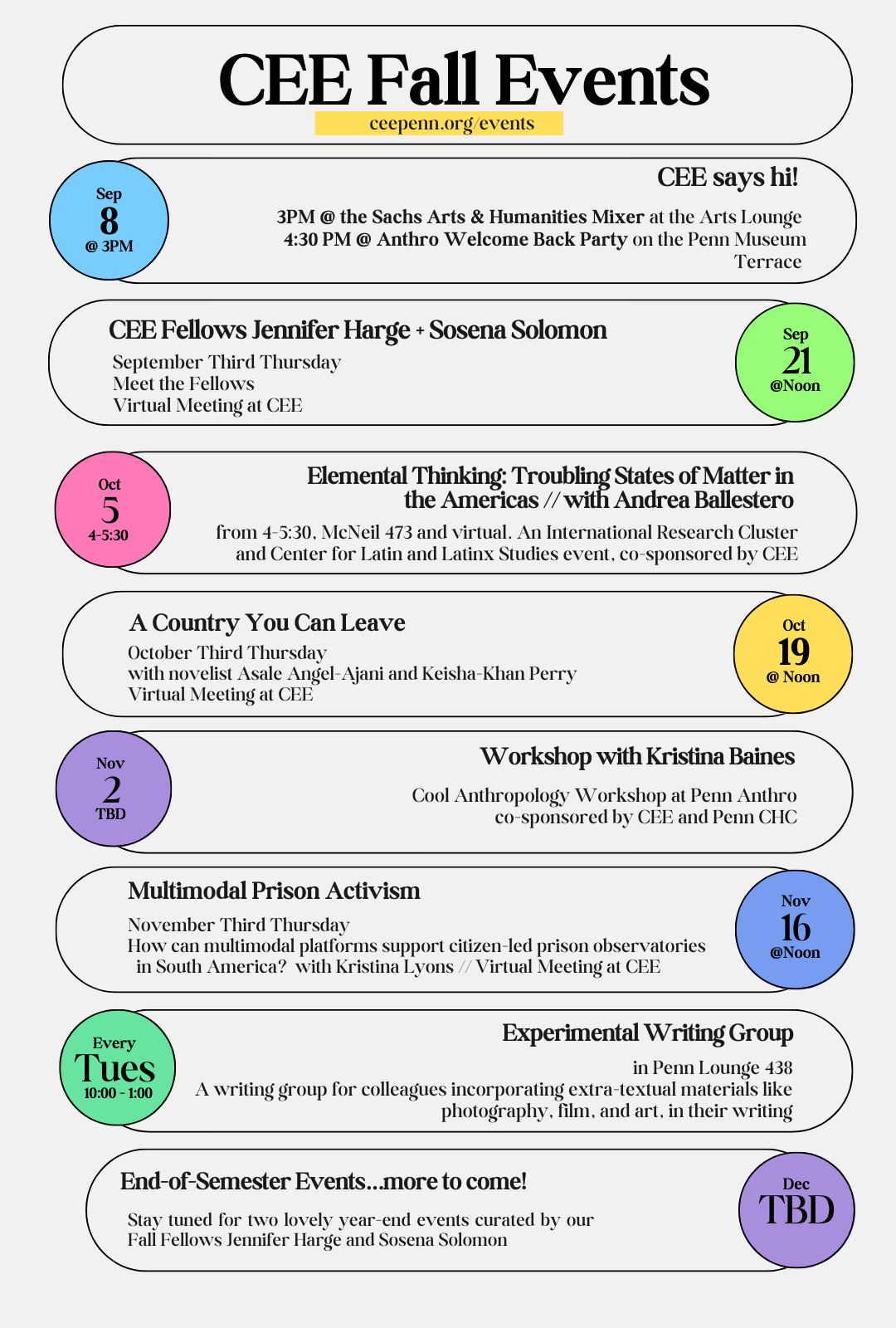
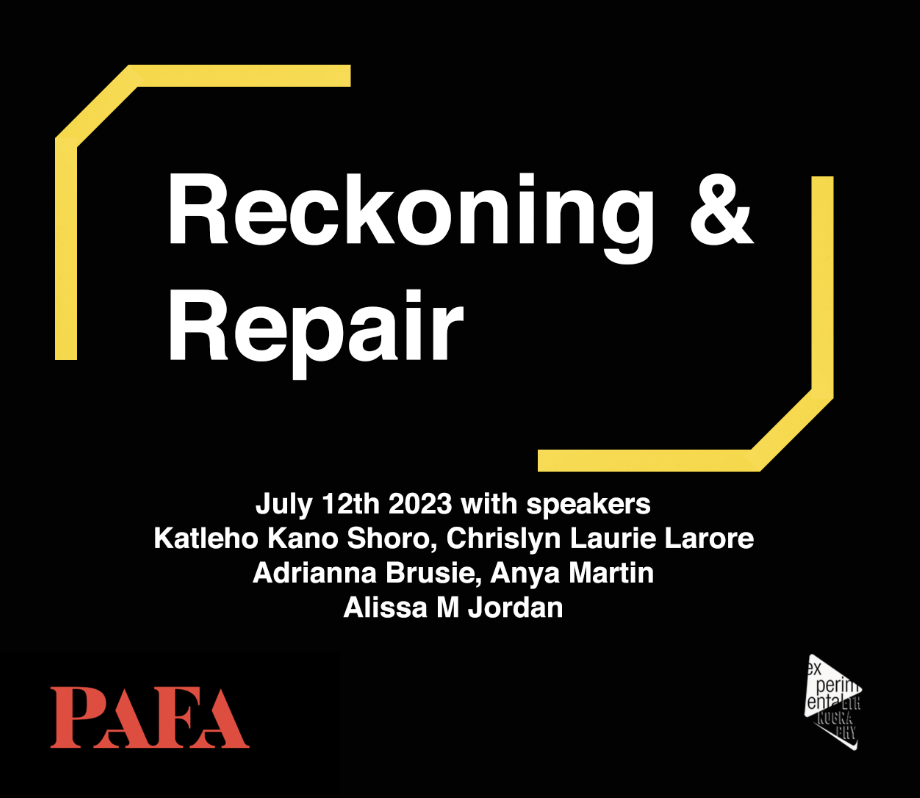
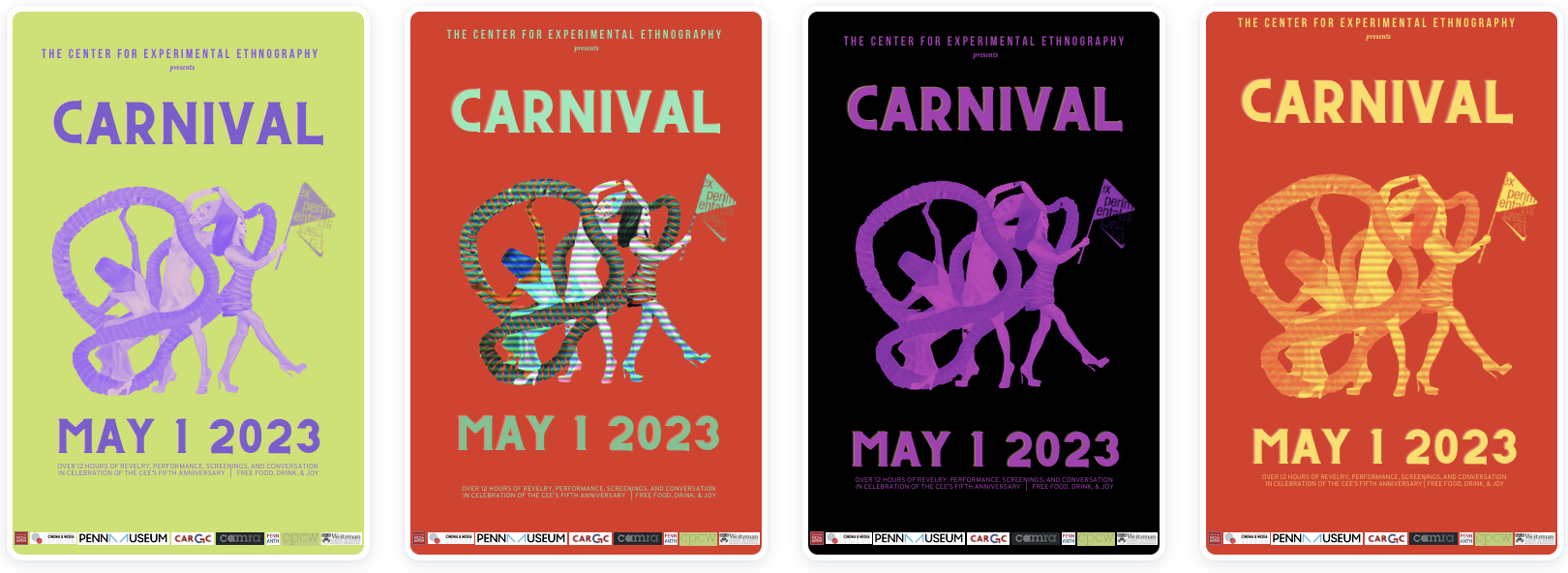
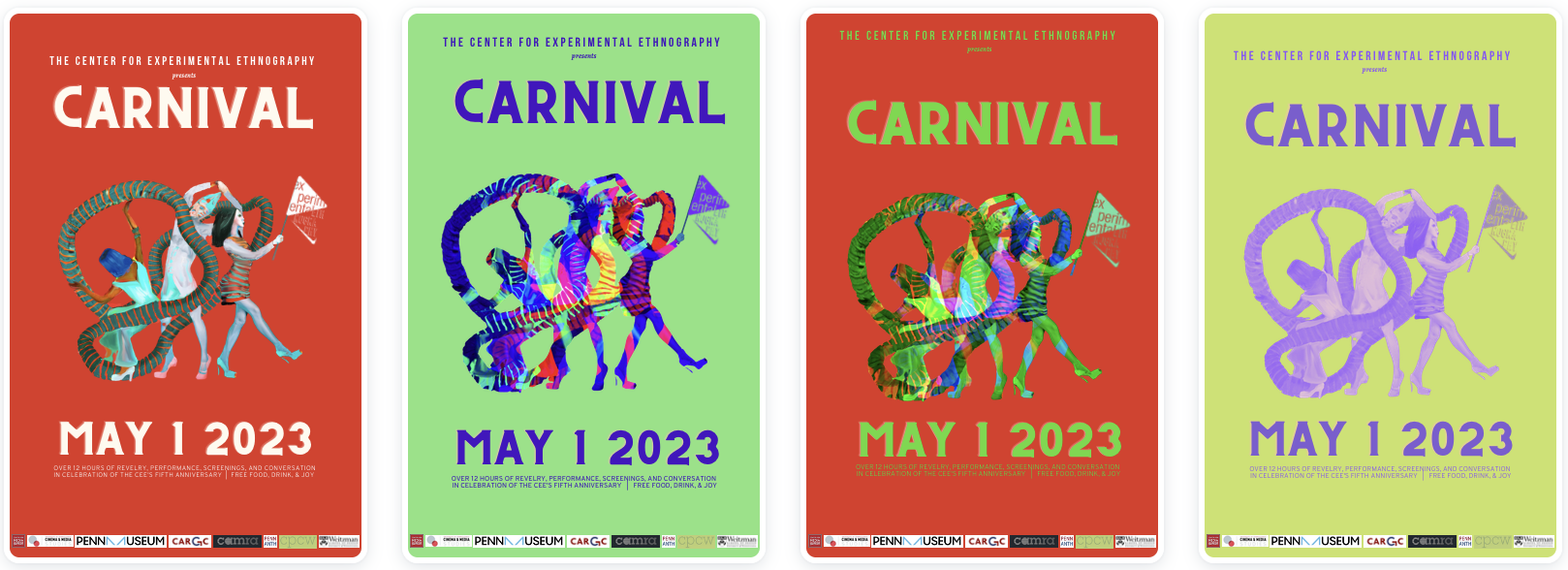
 RSS Feed
RSS Feed